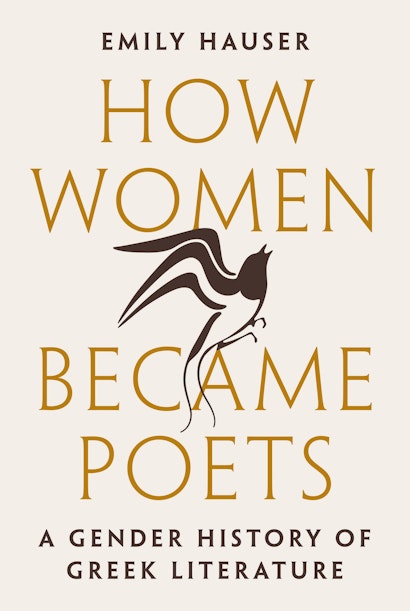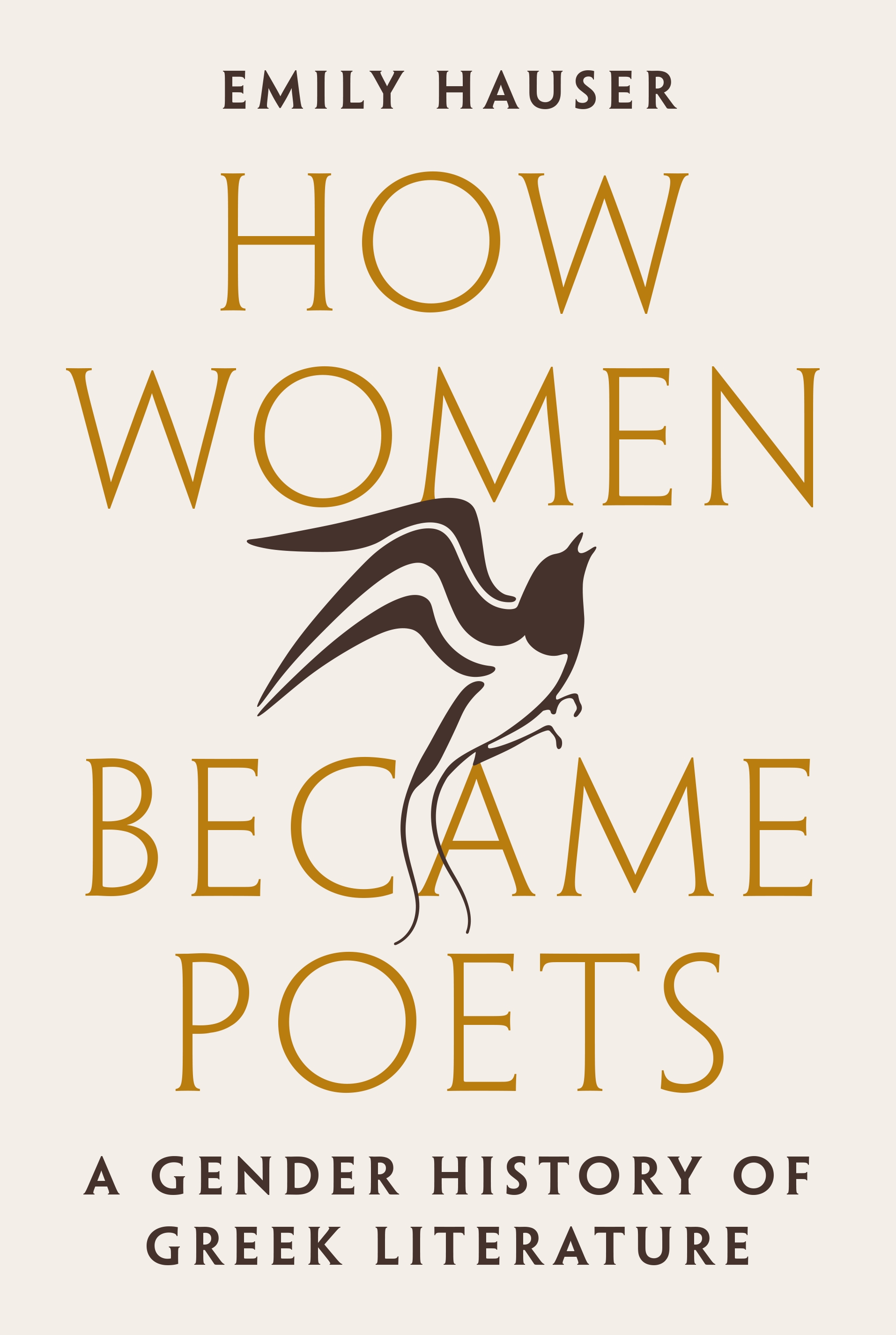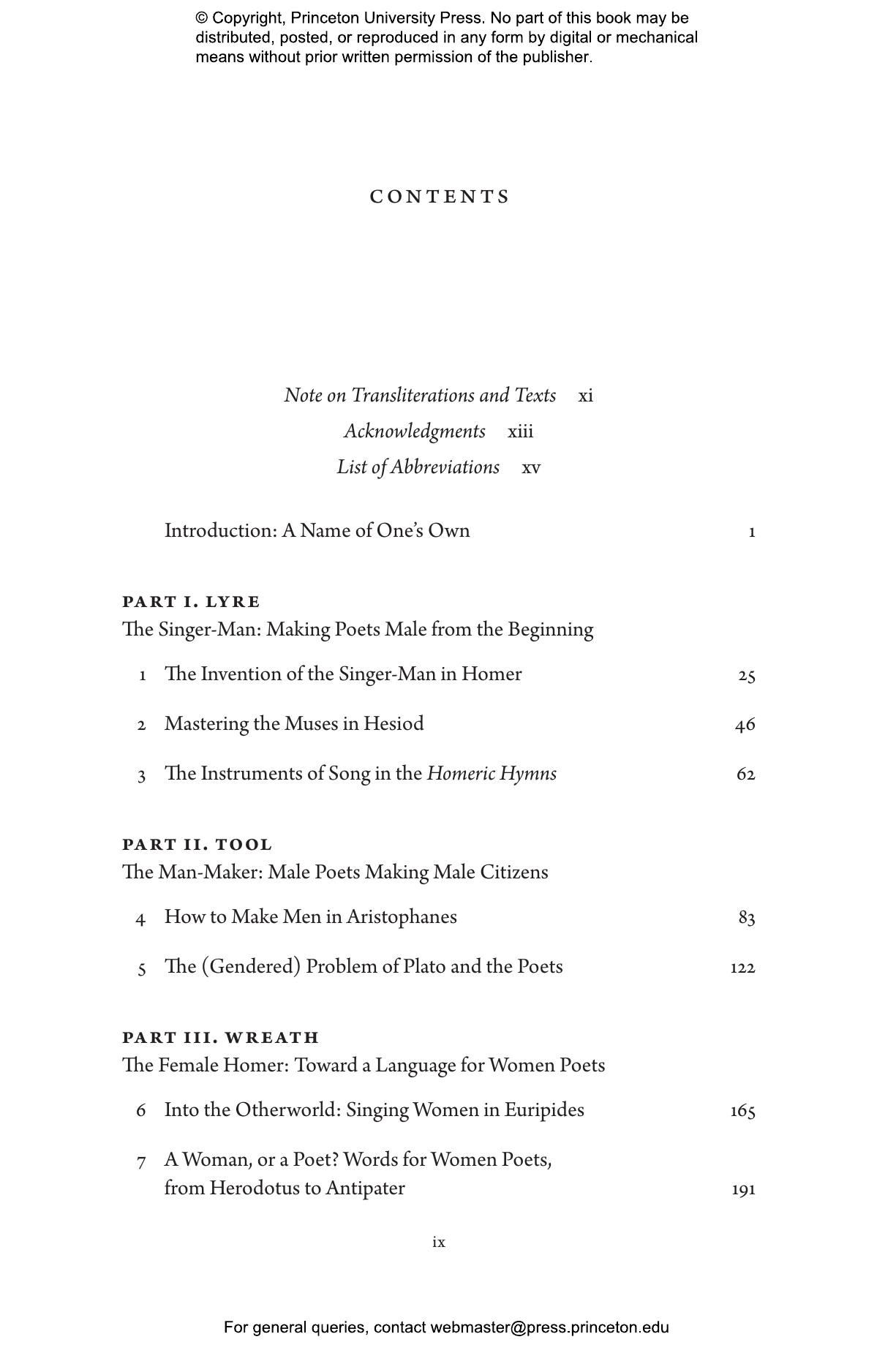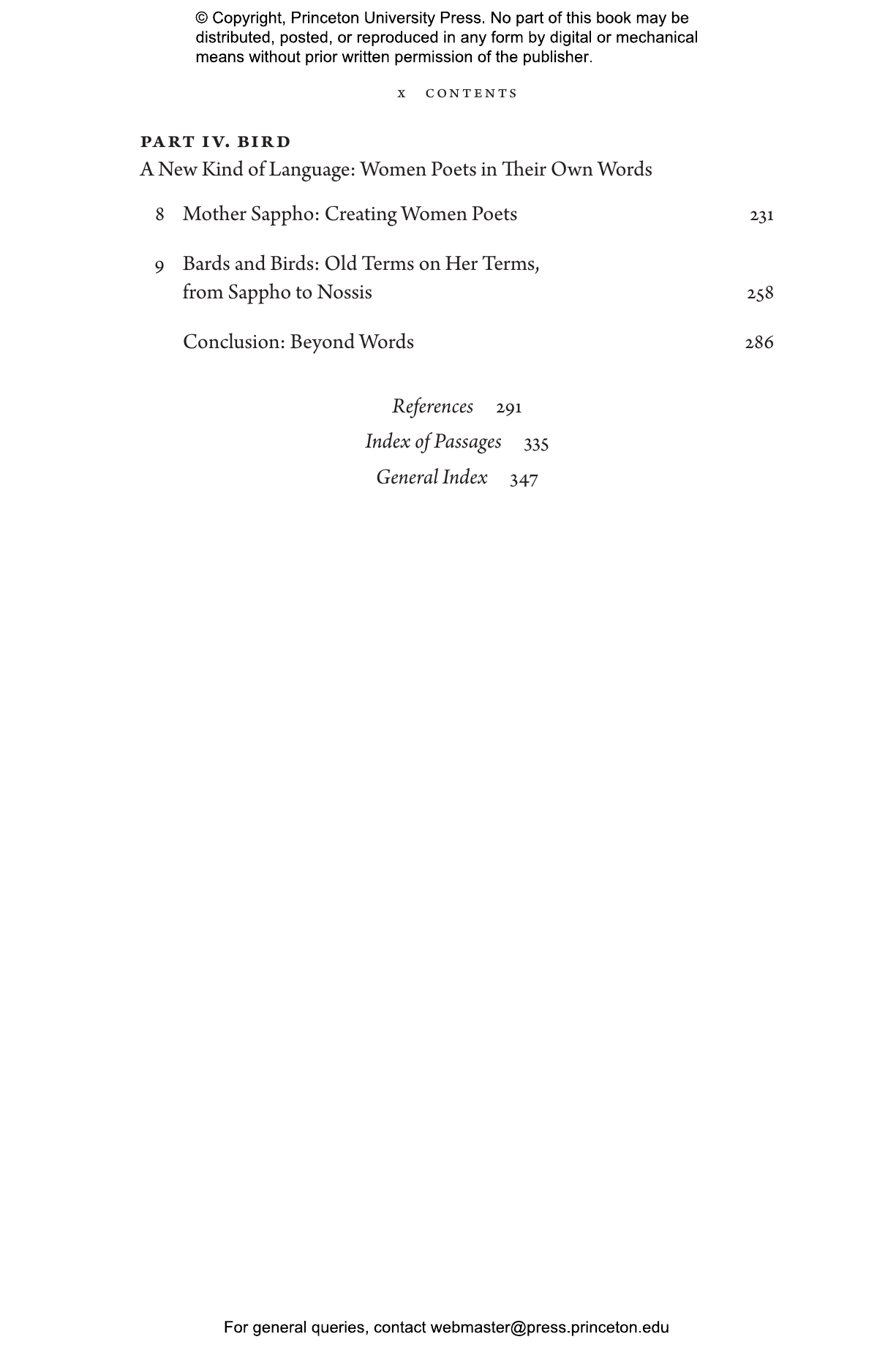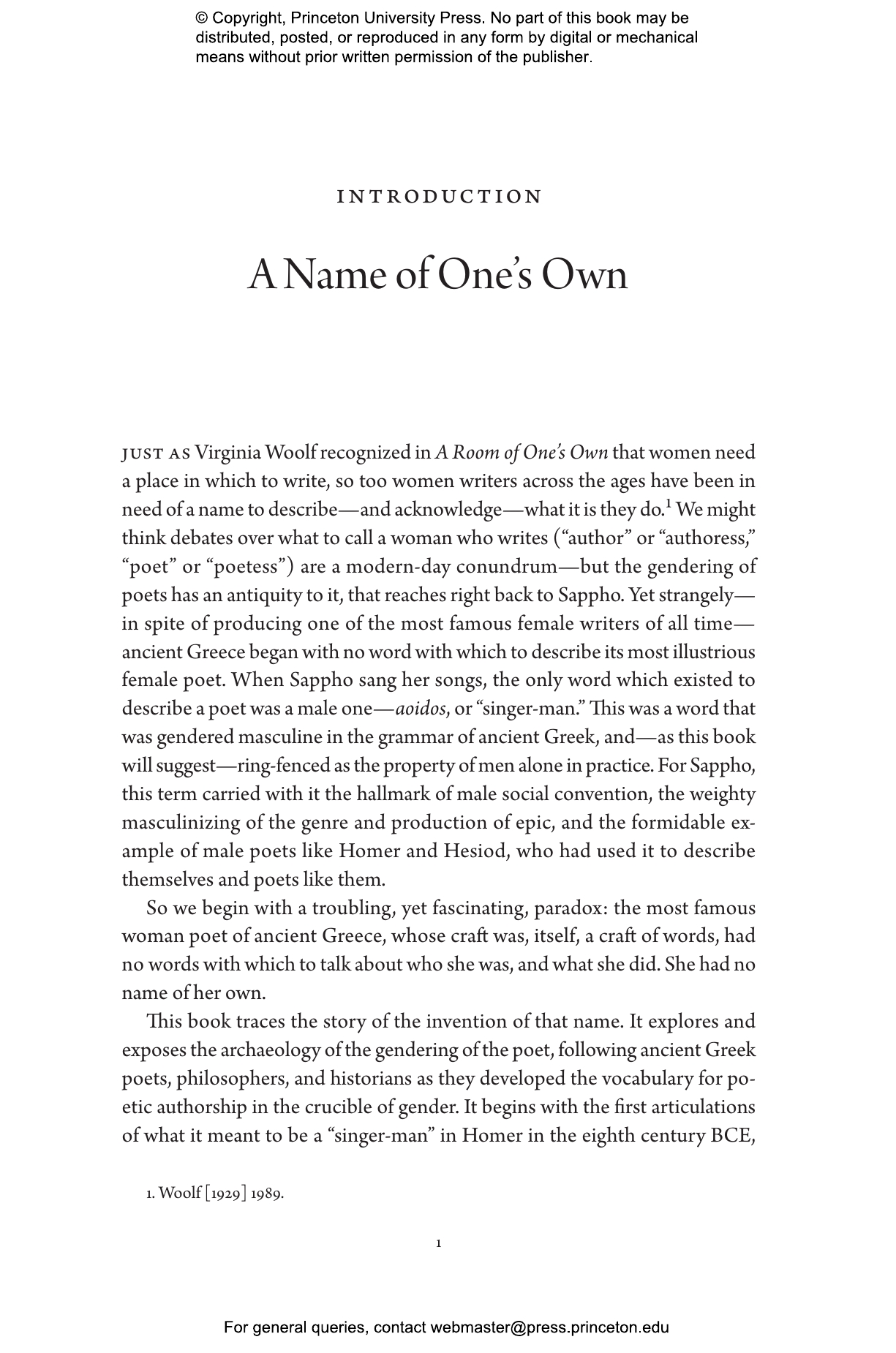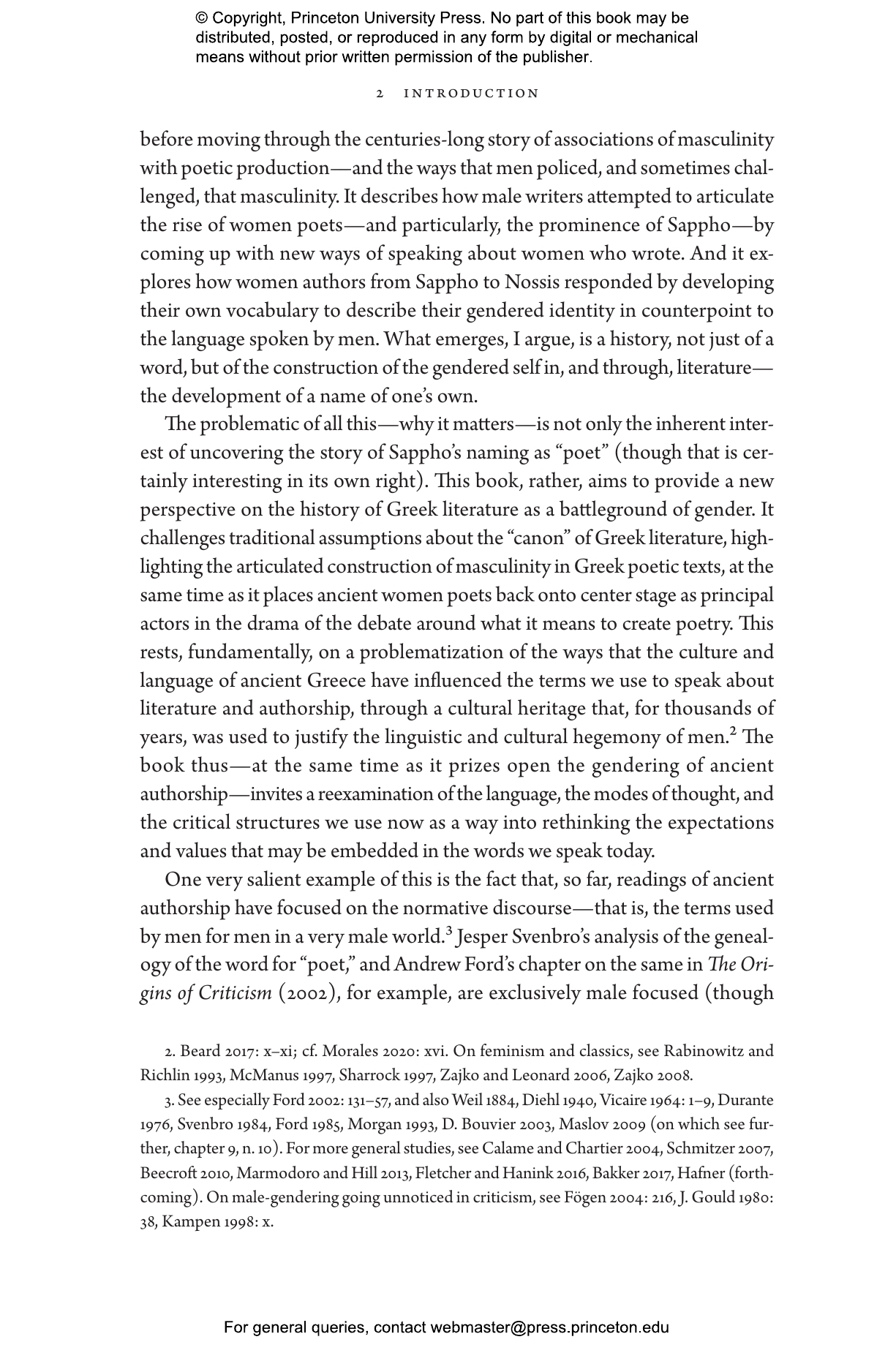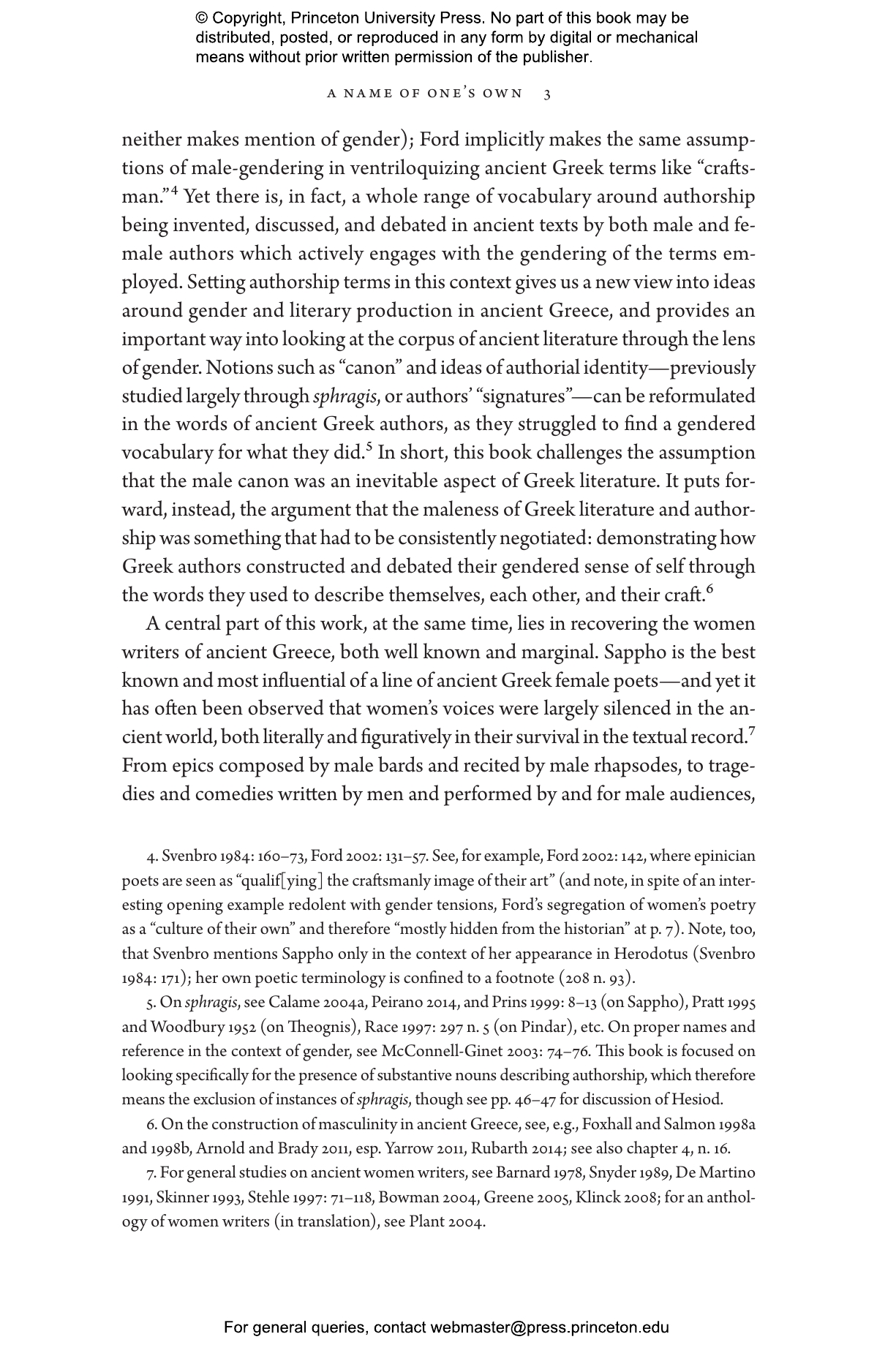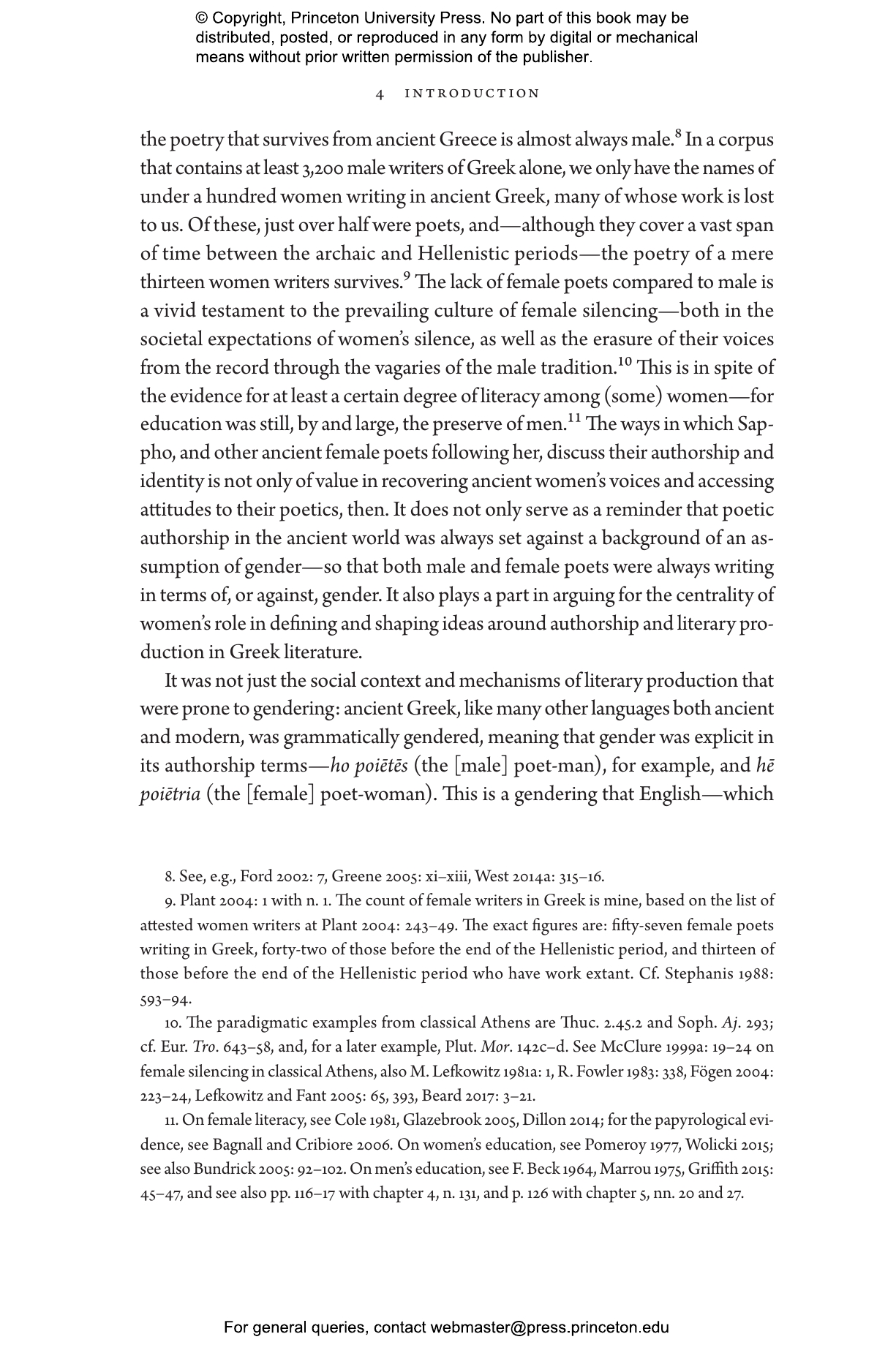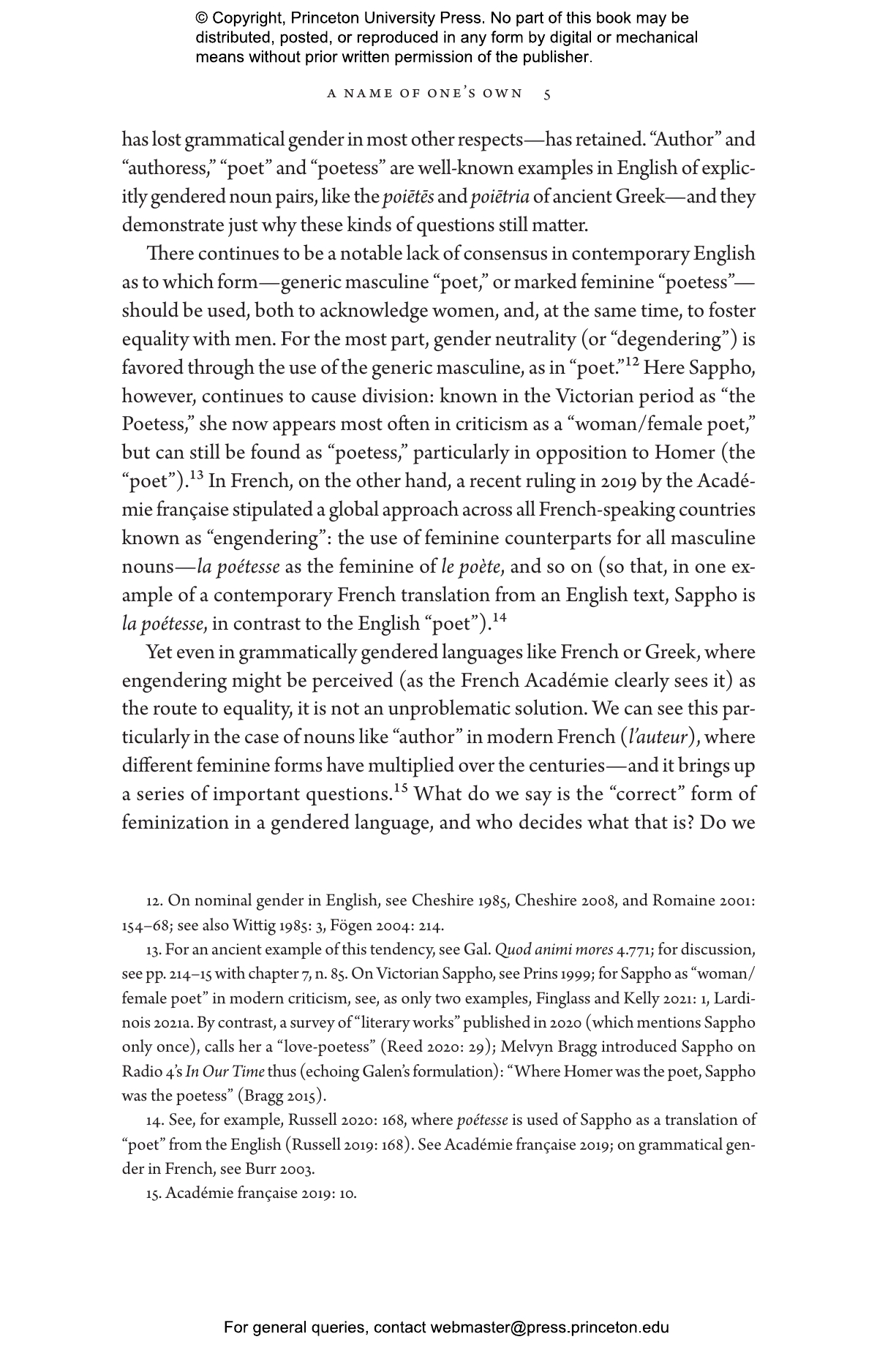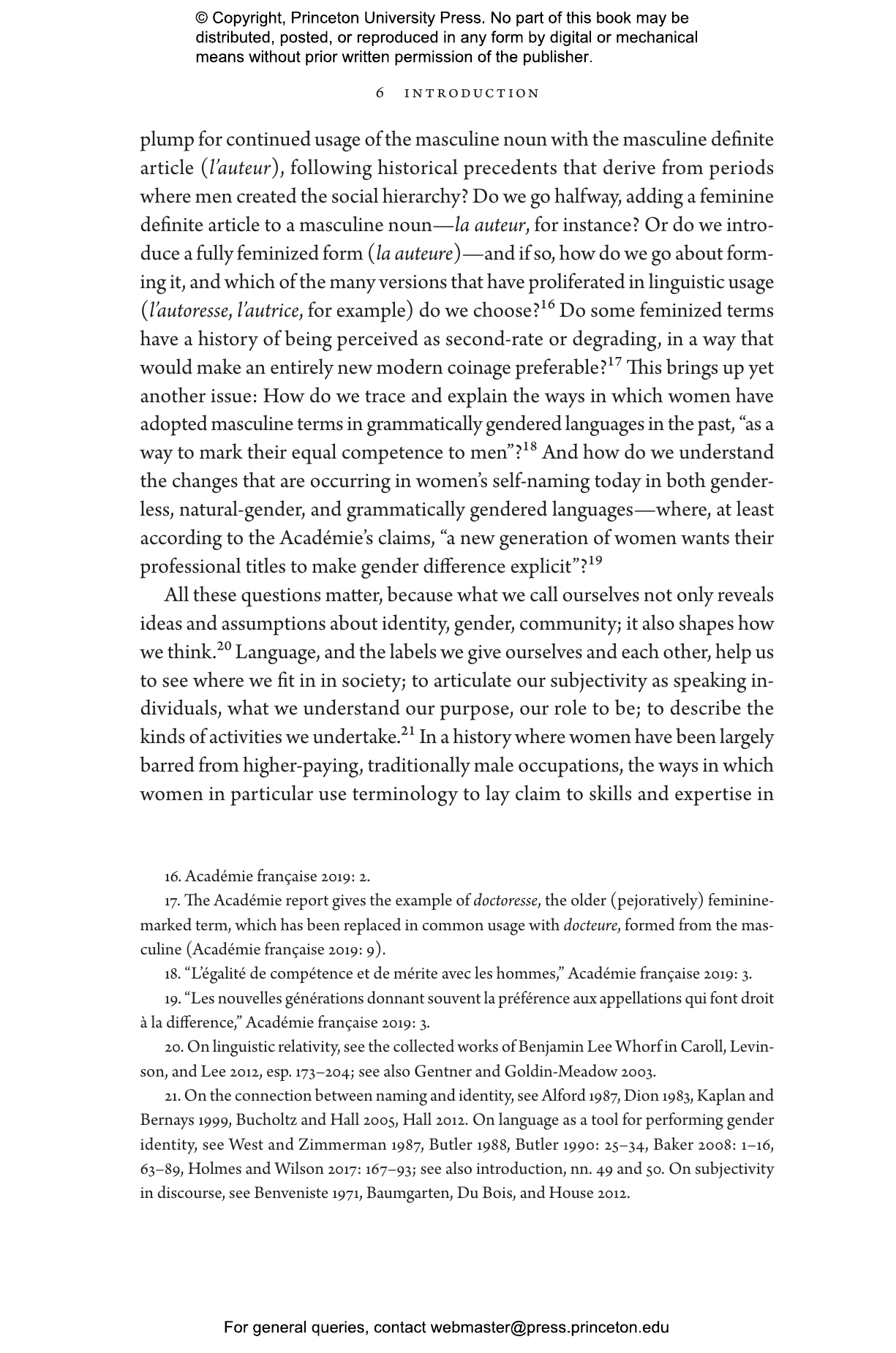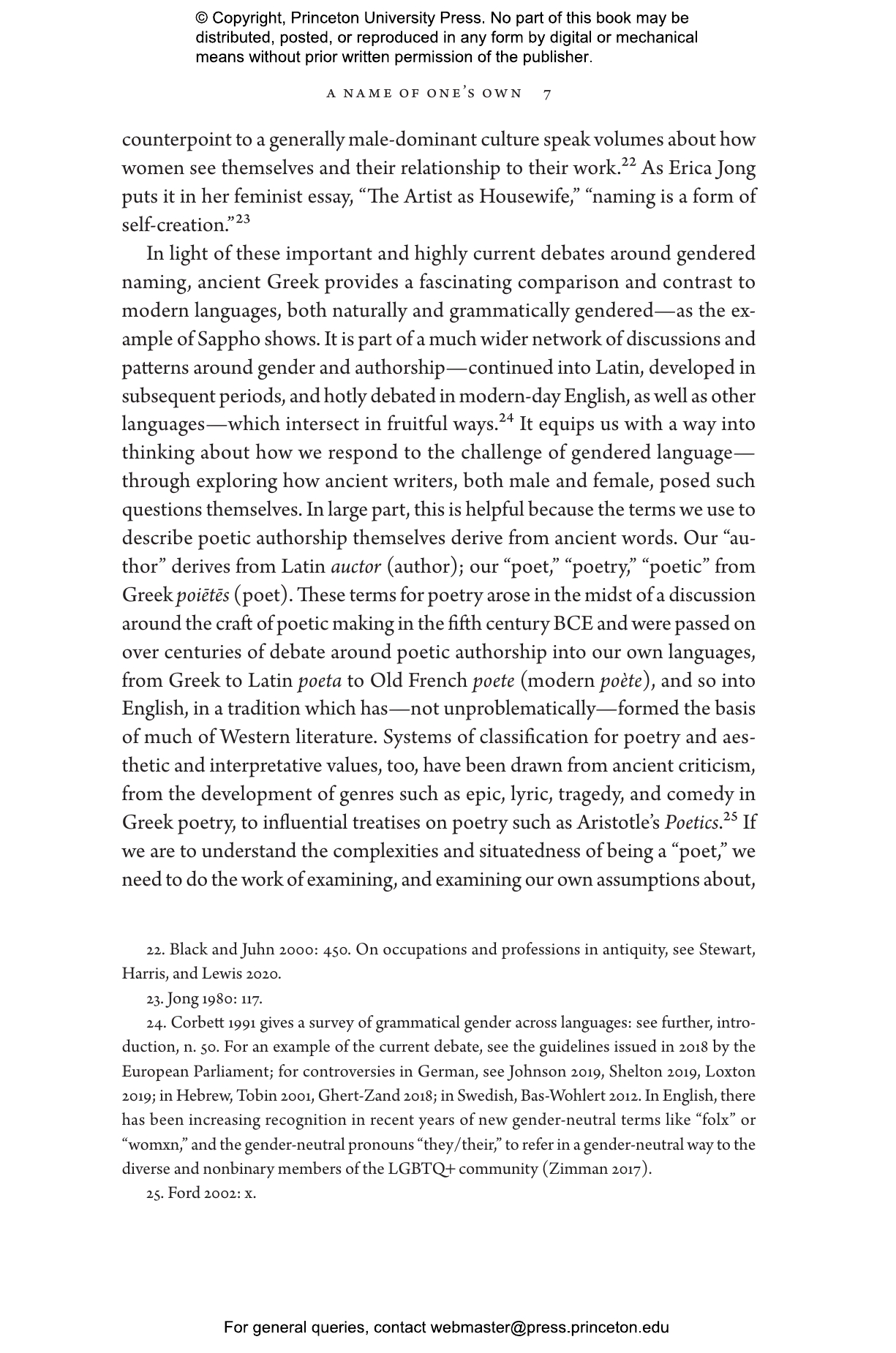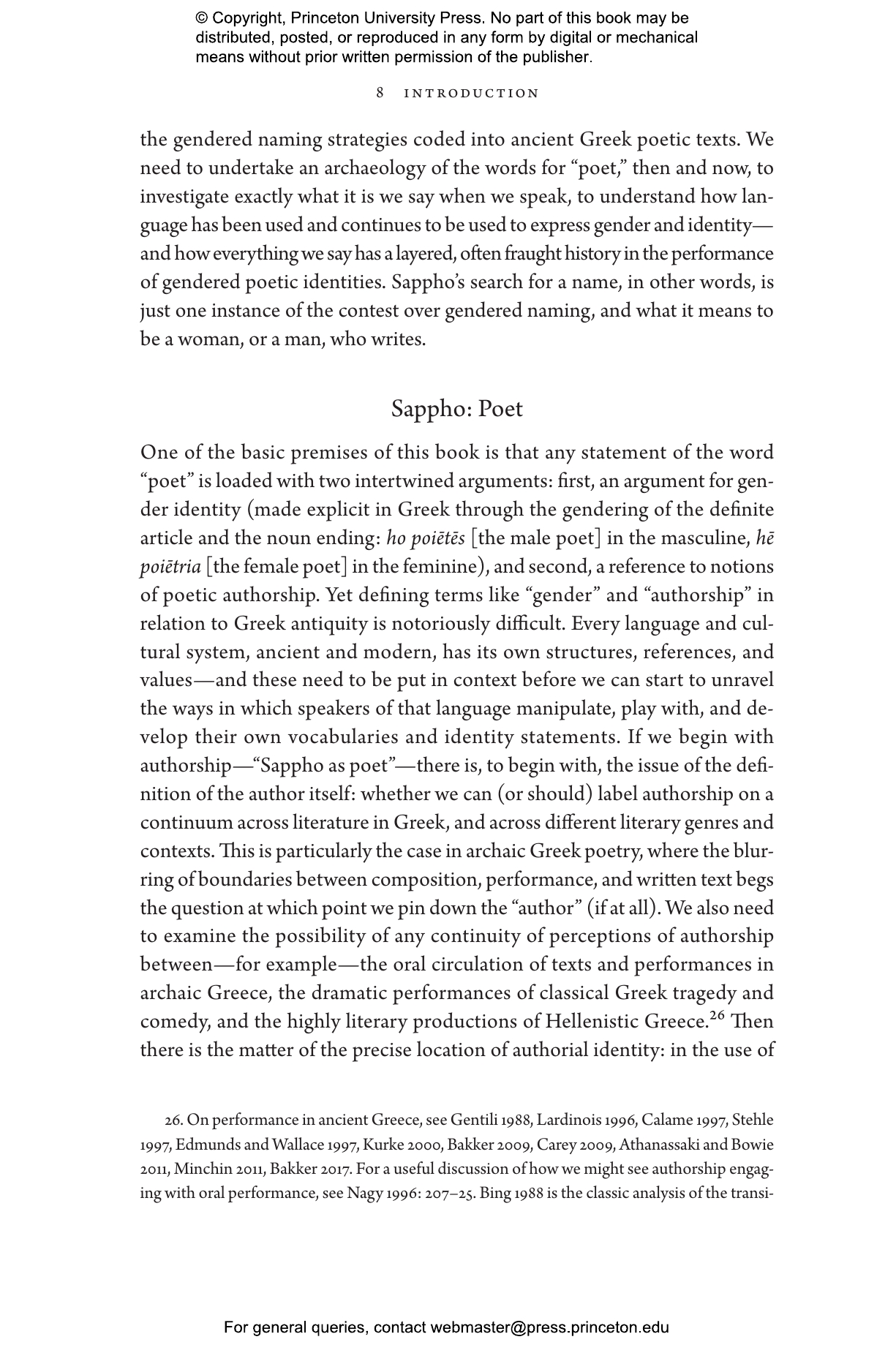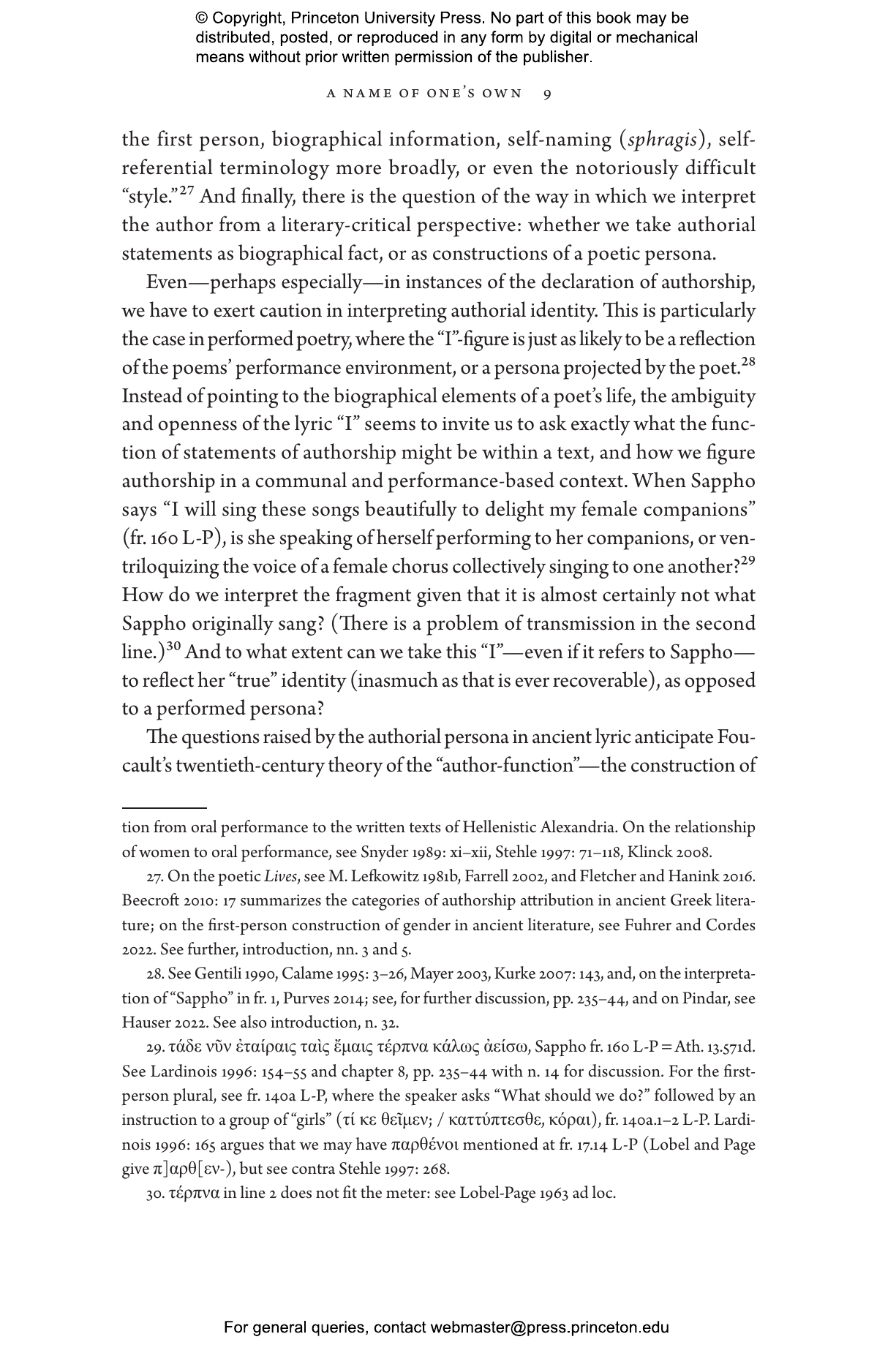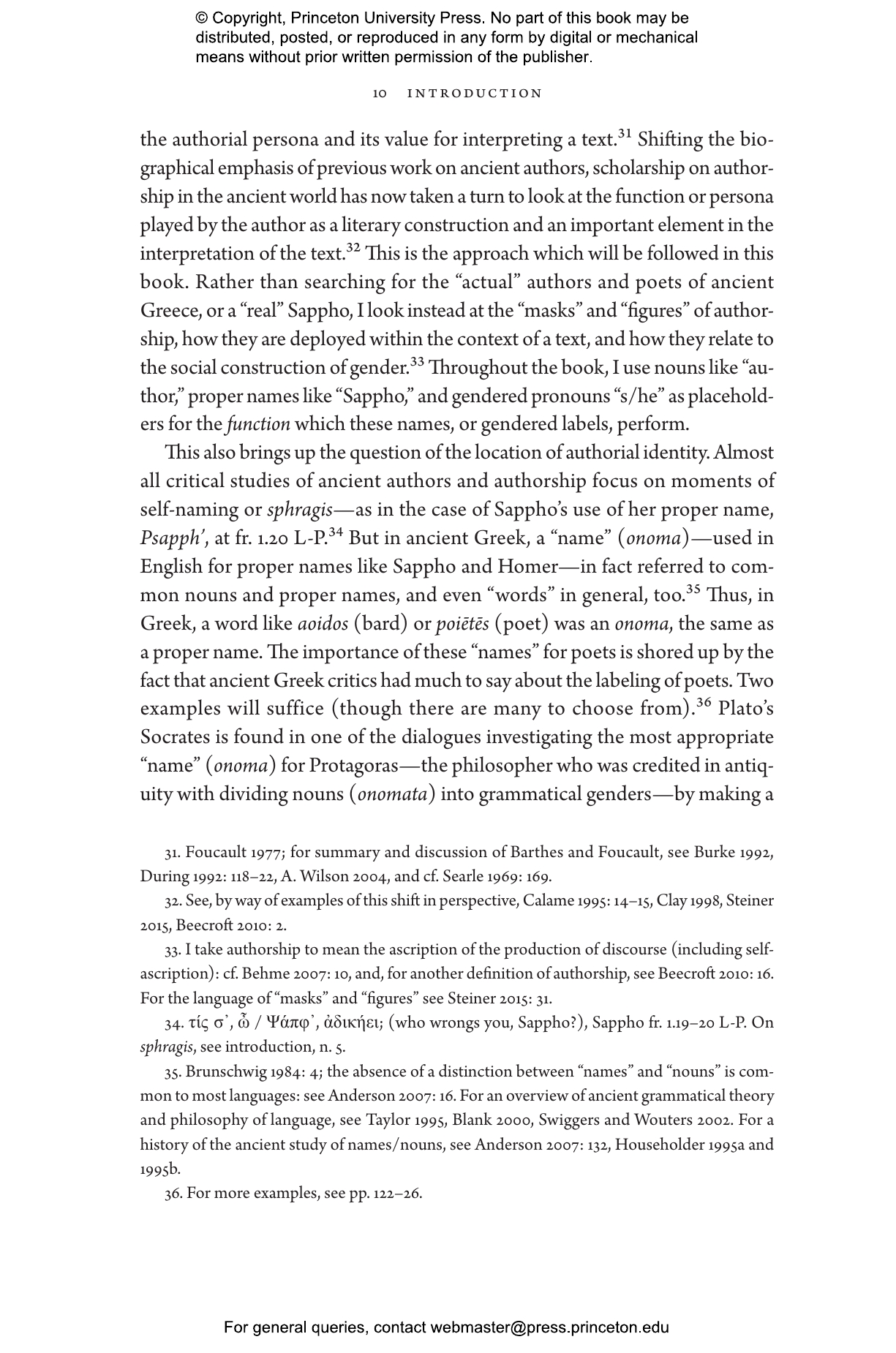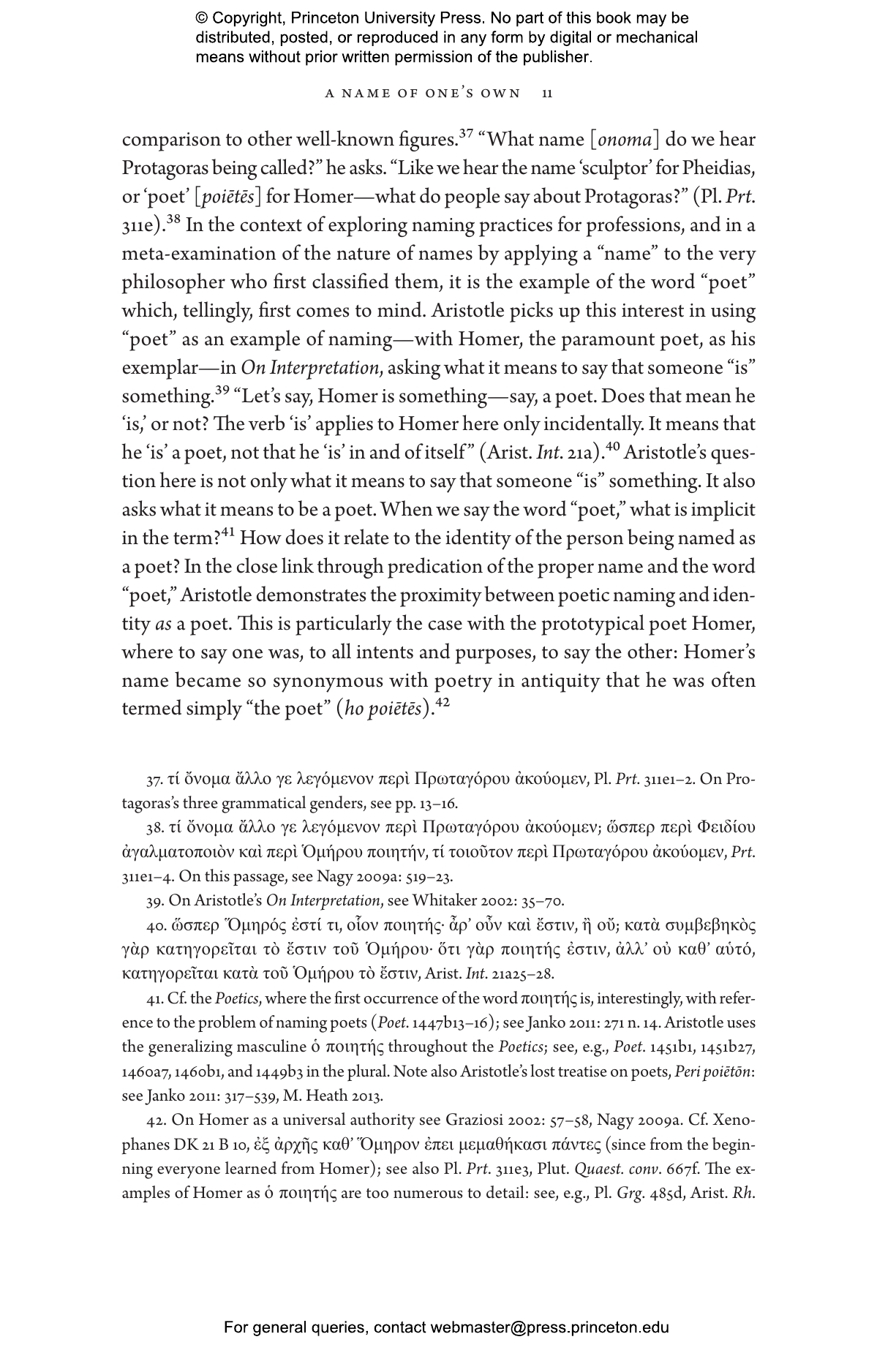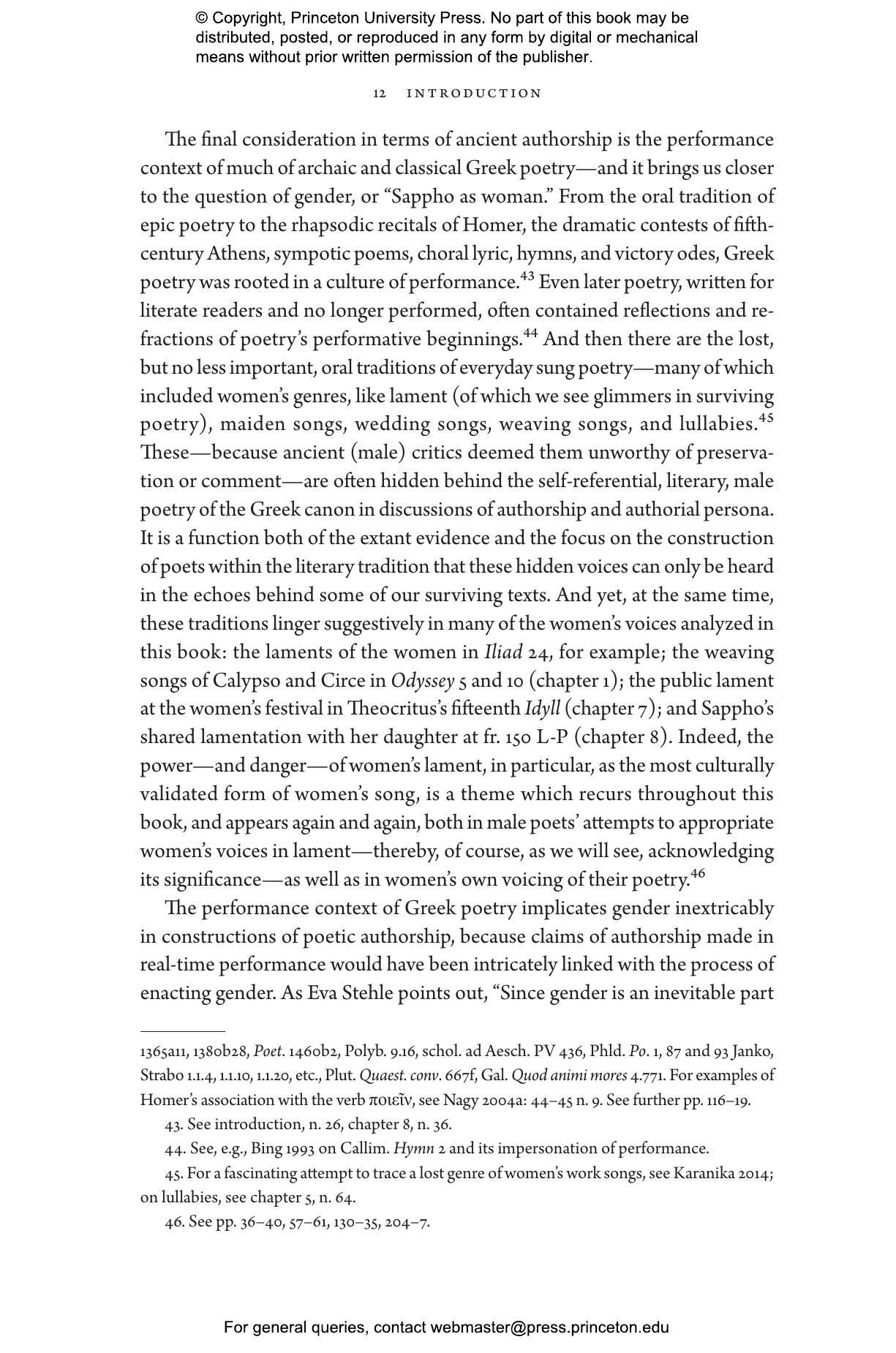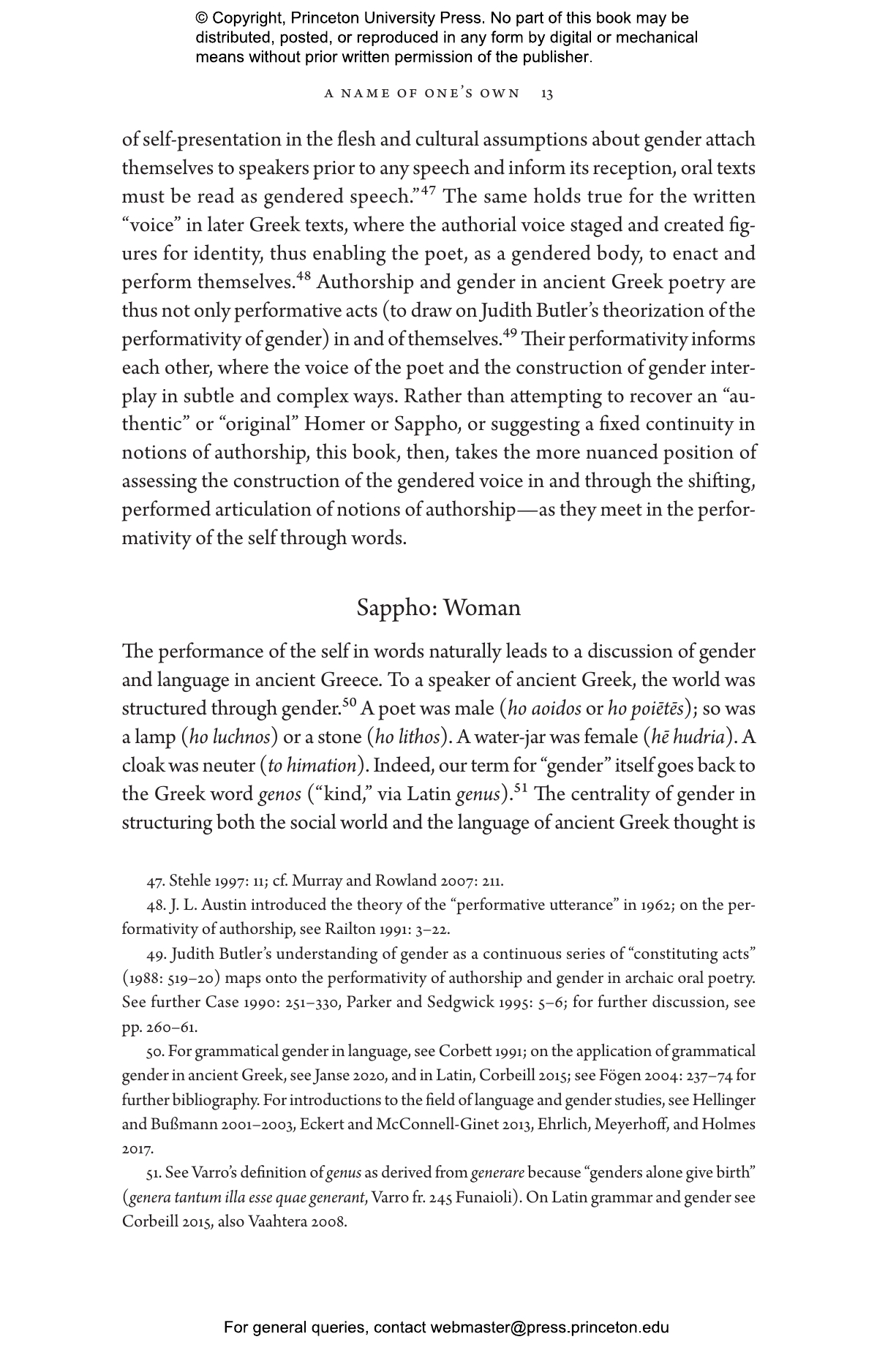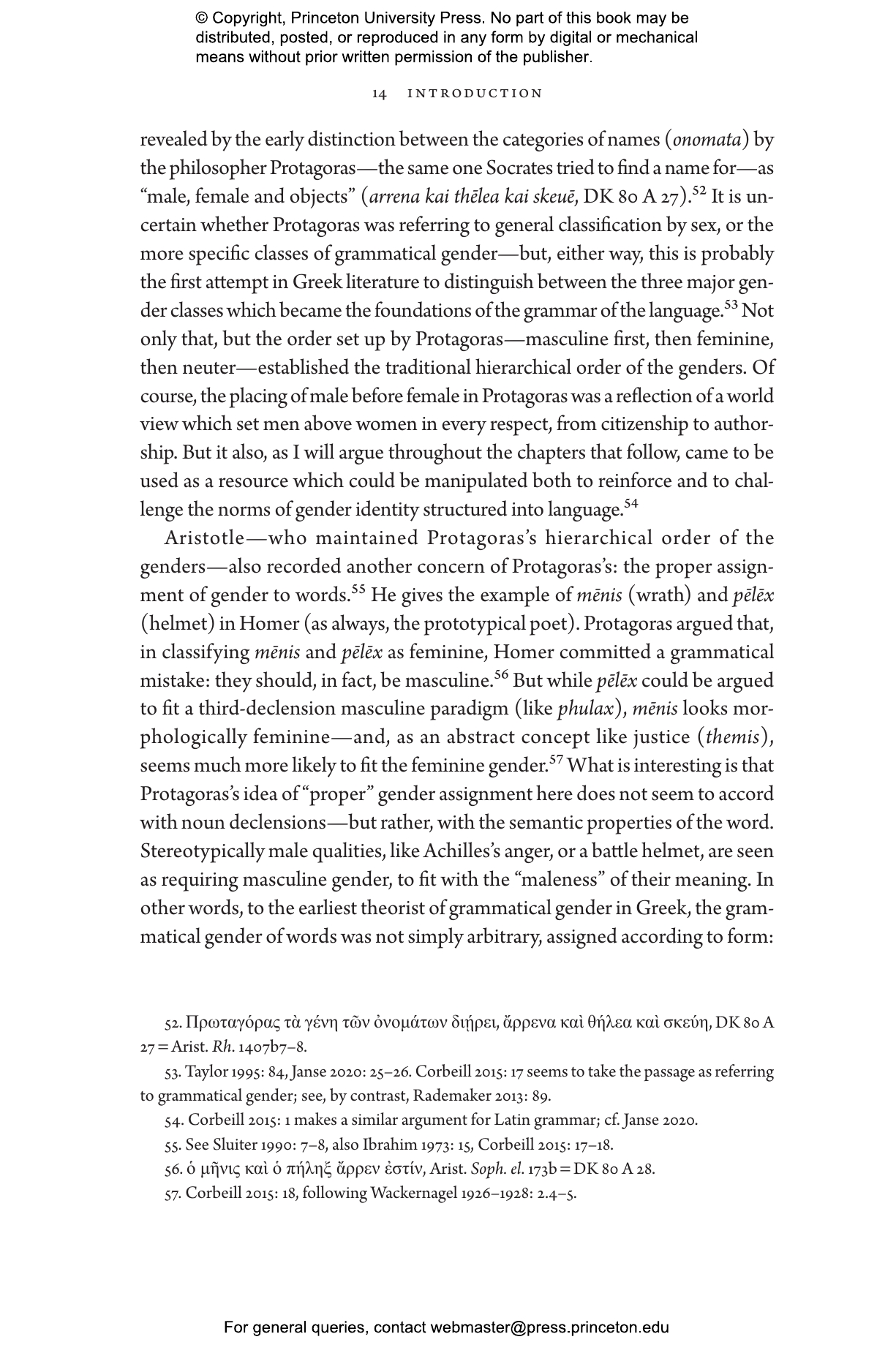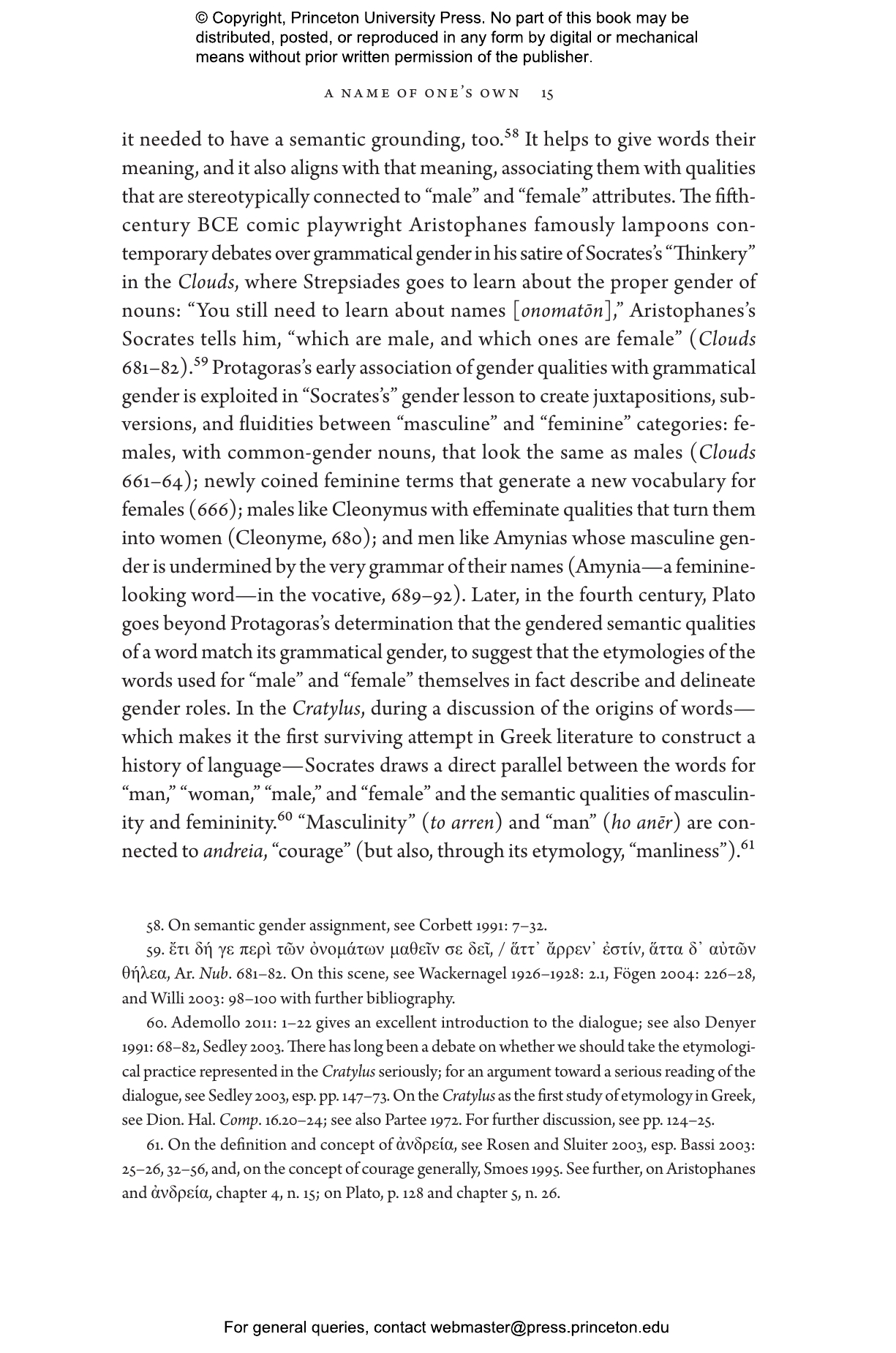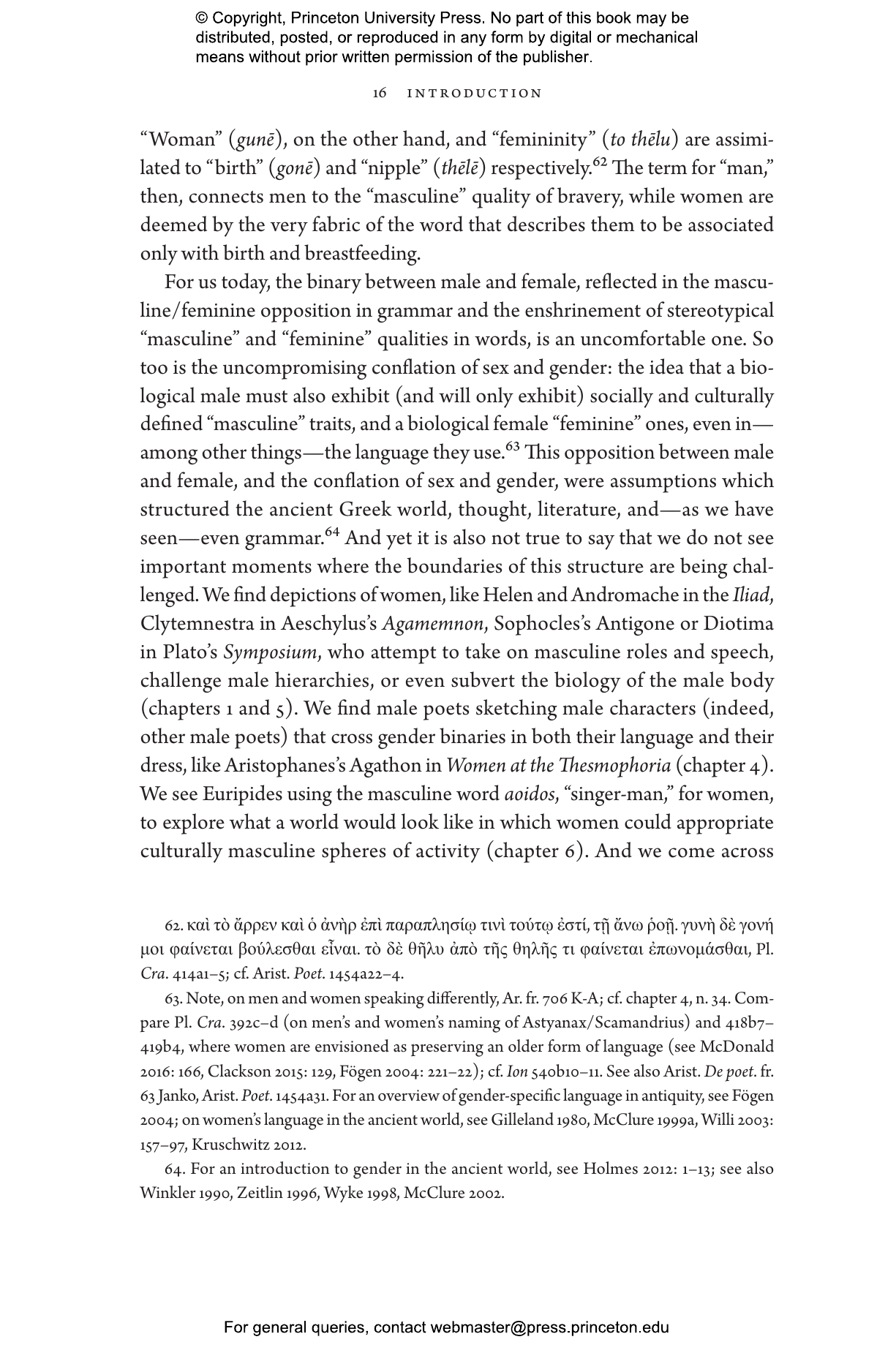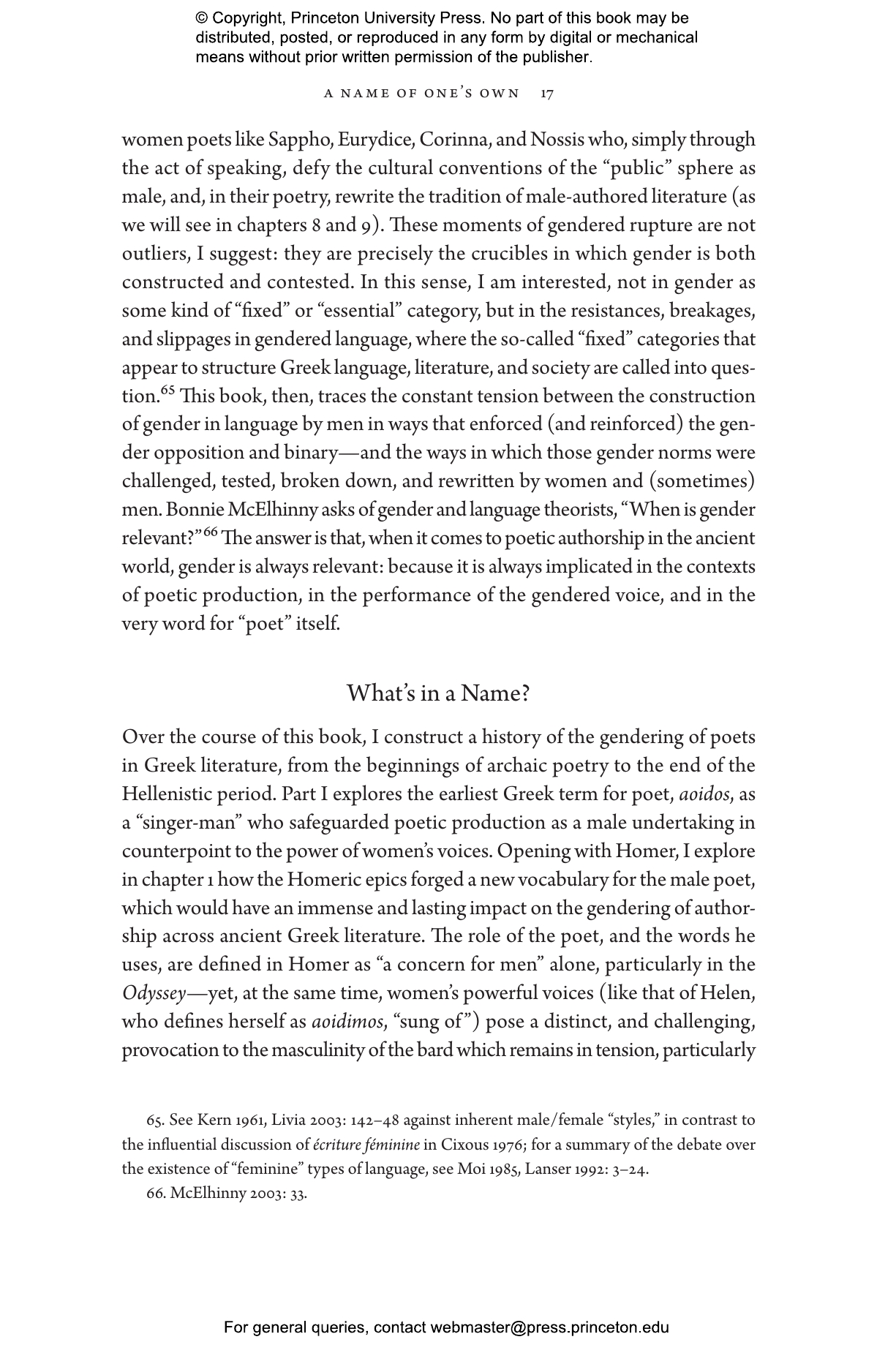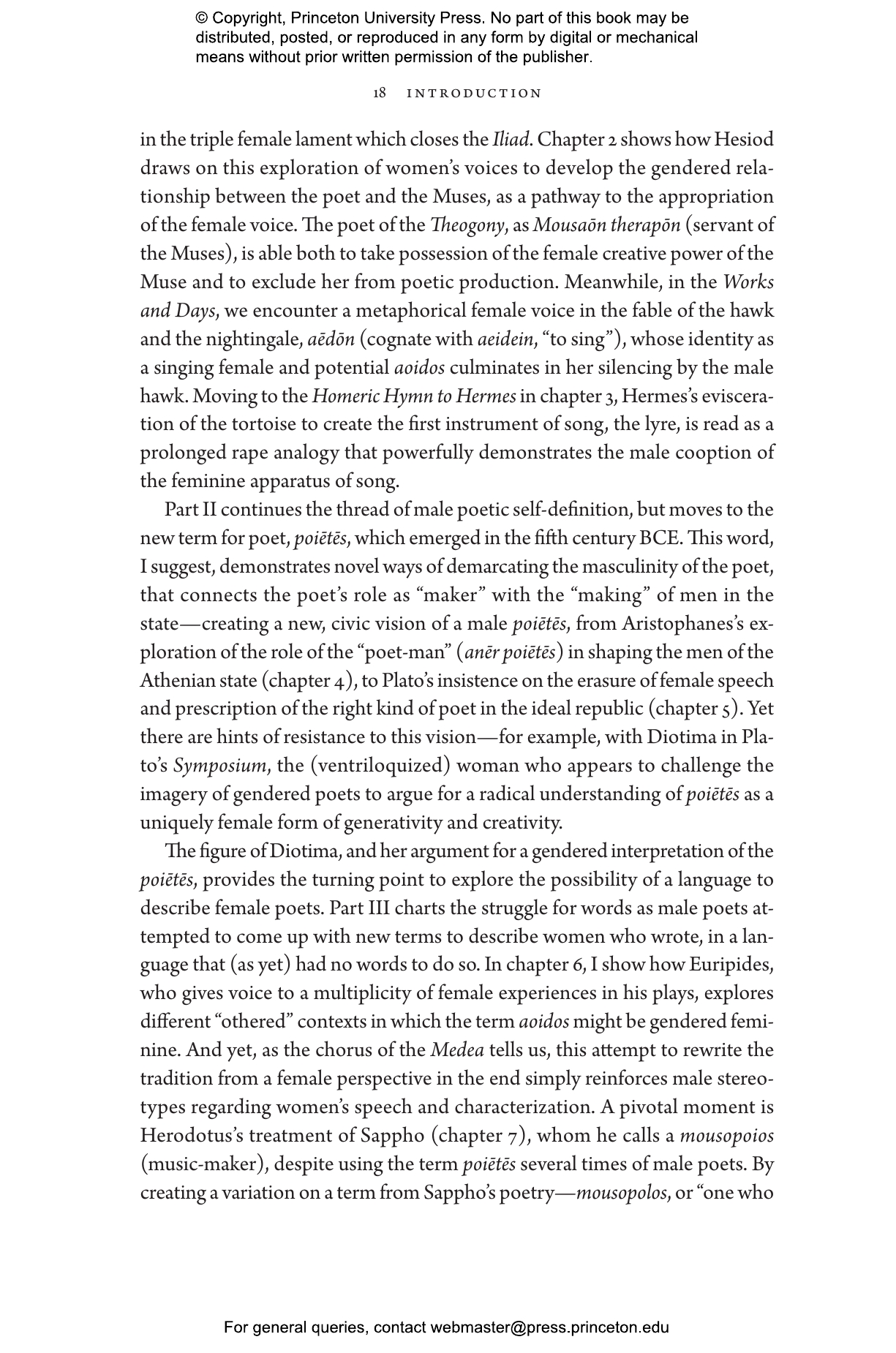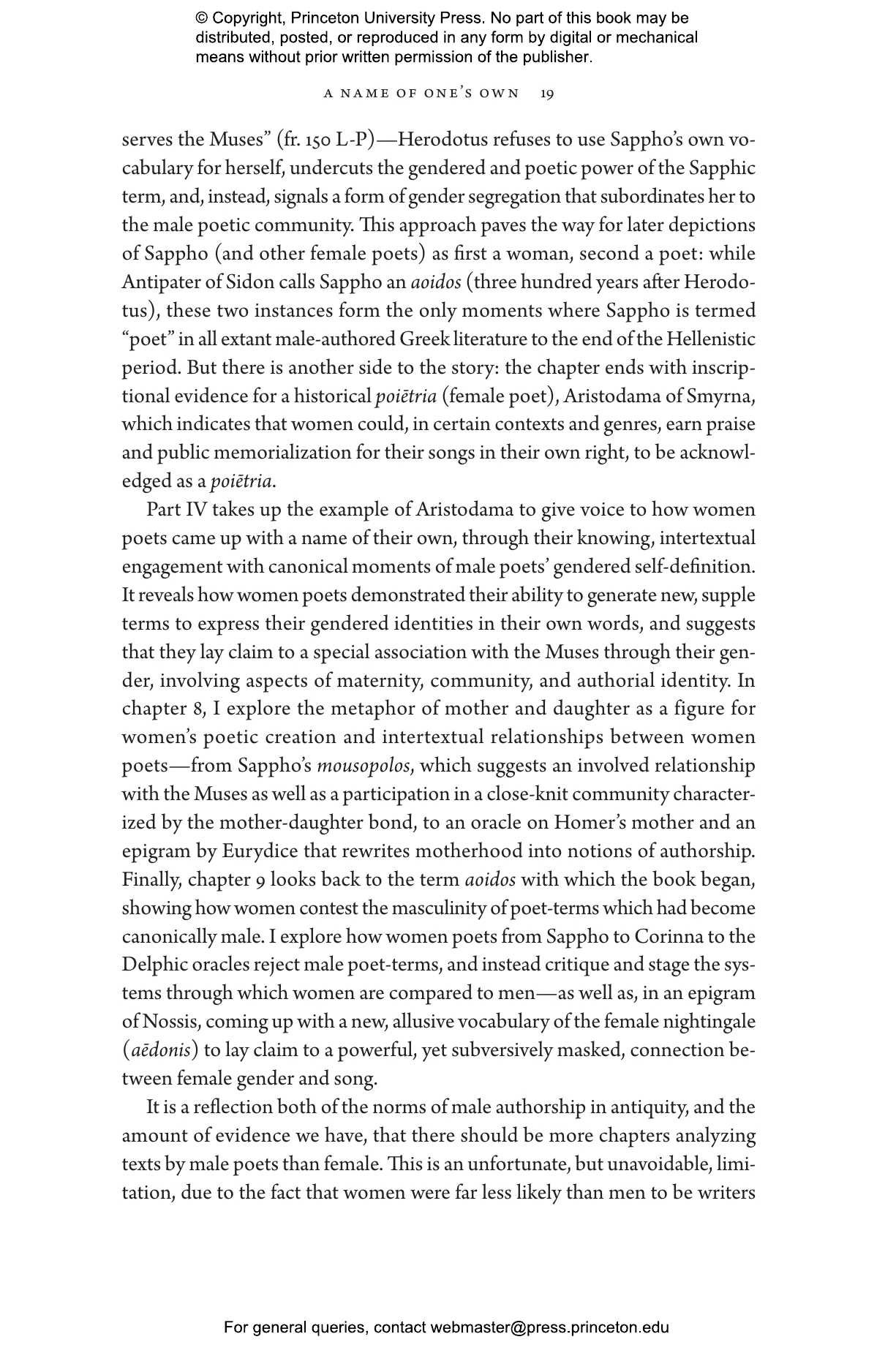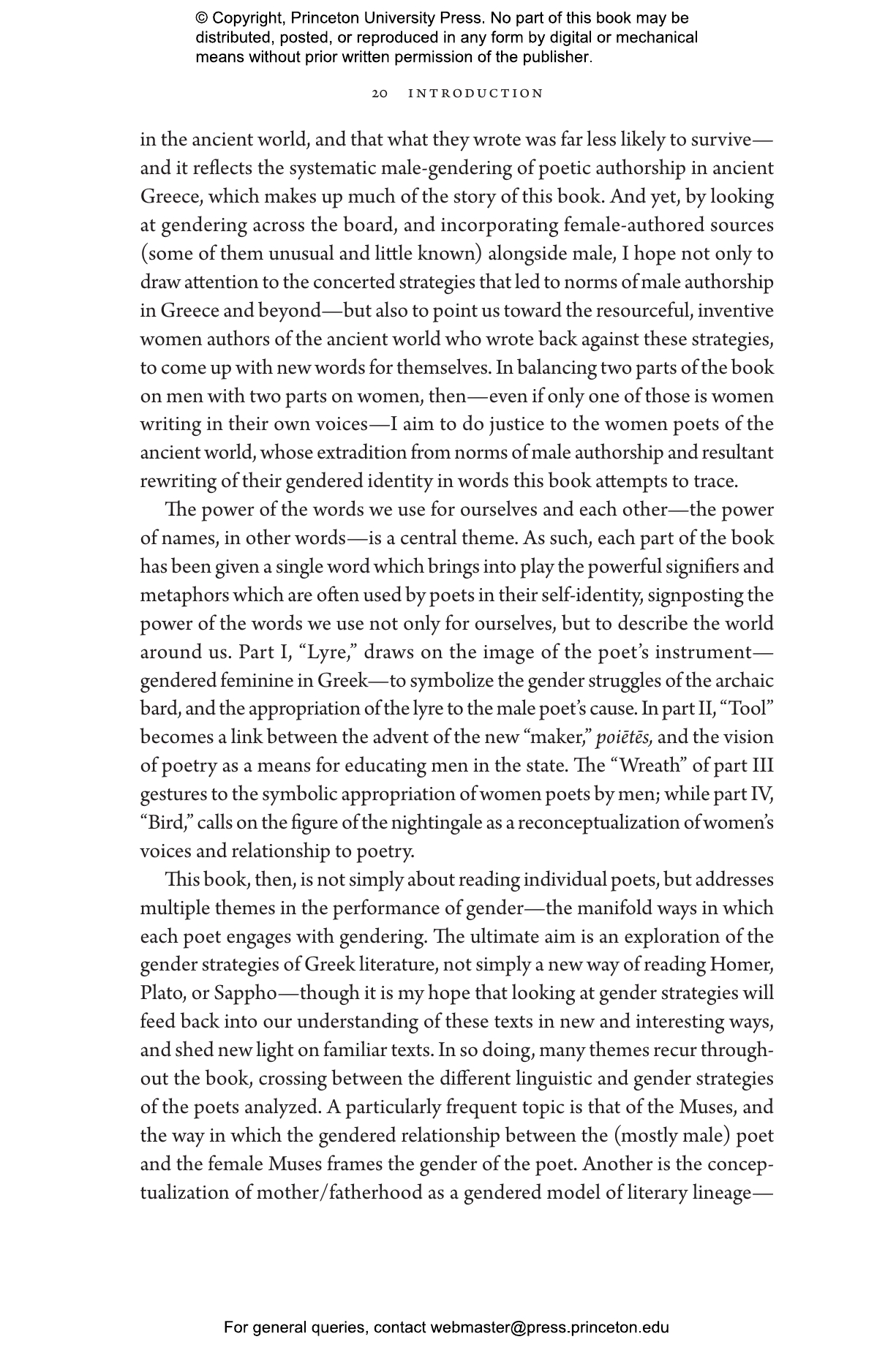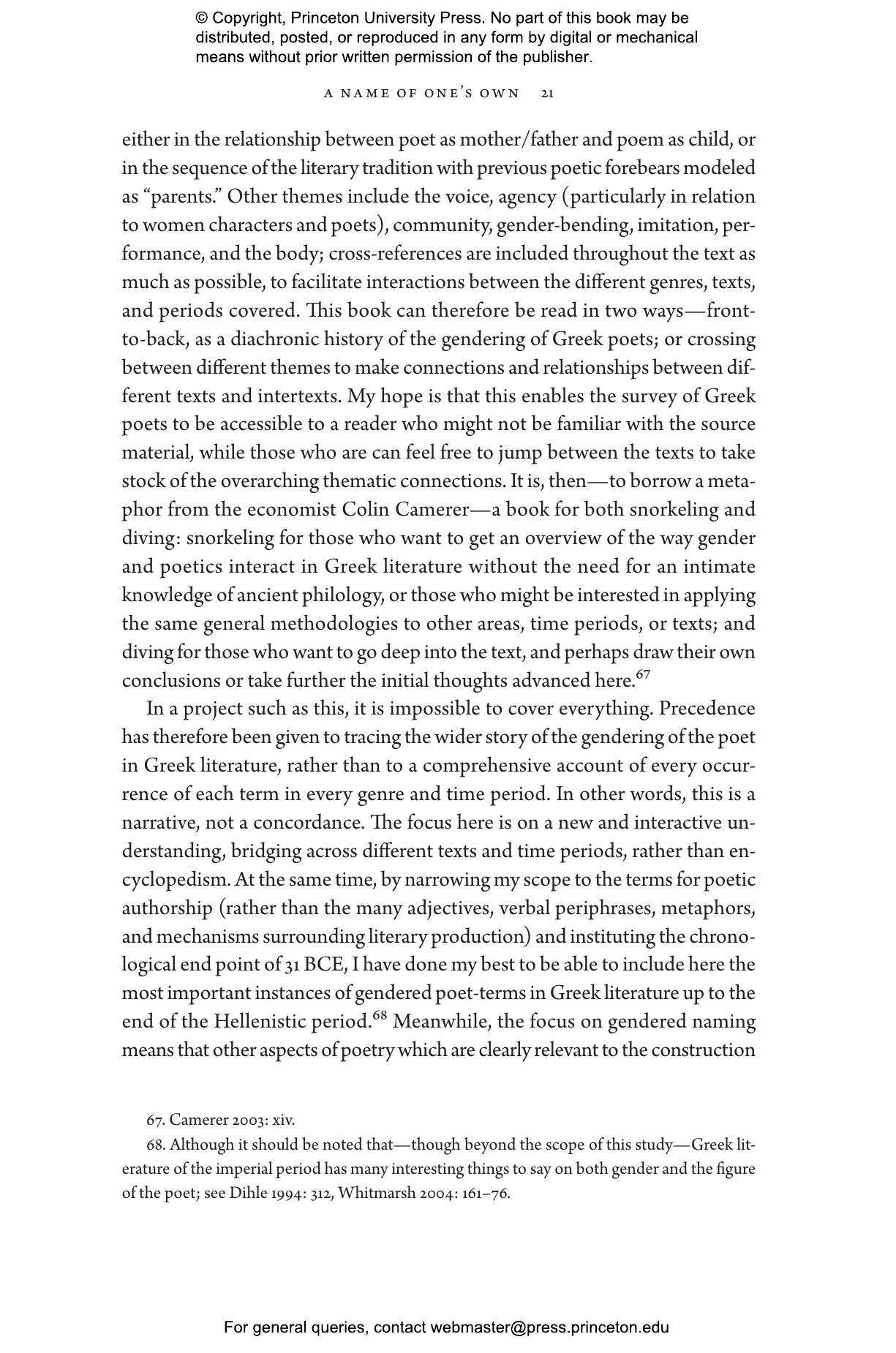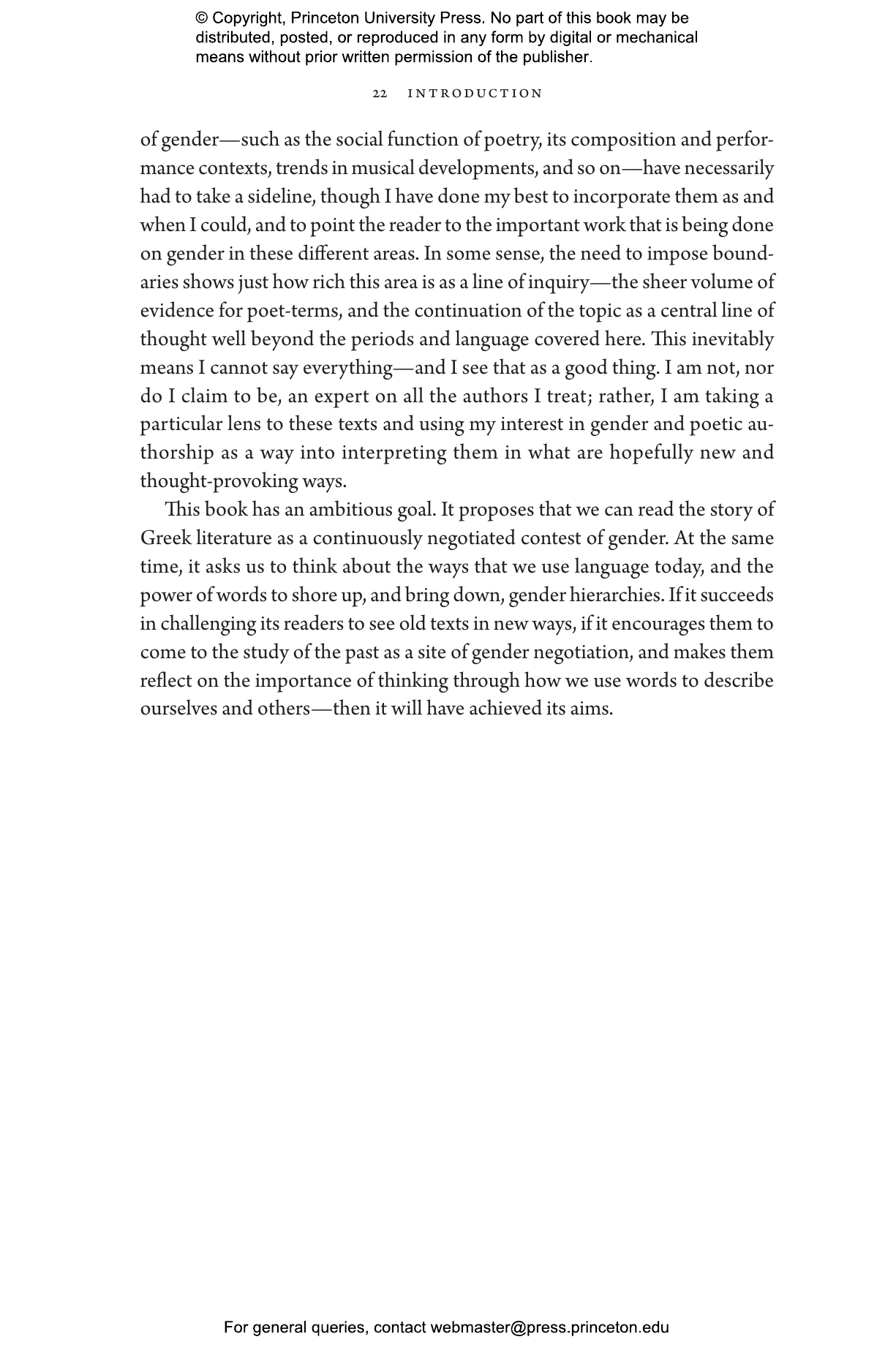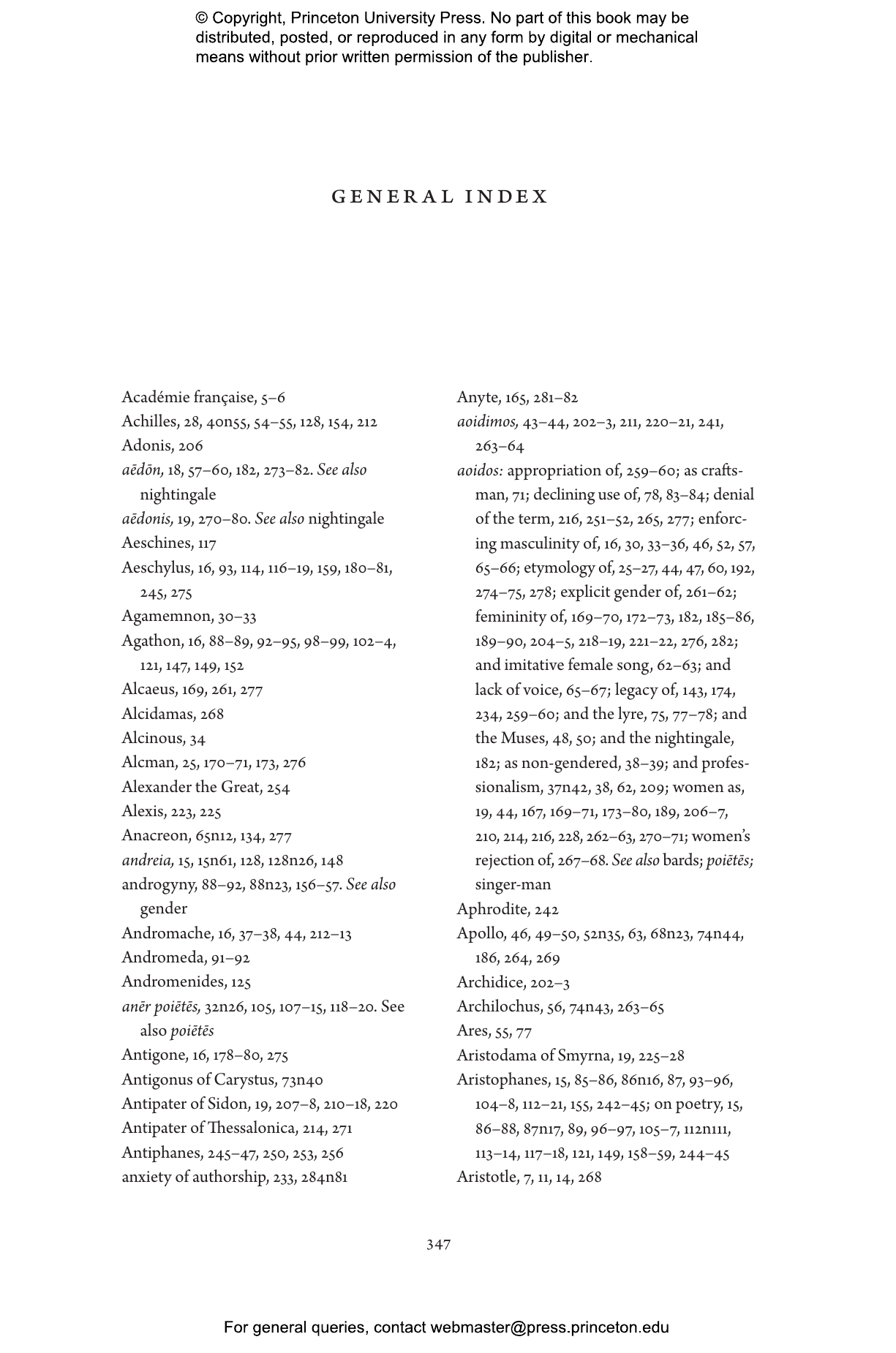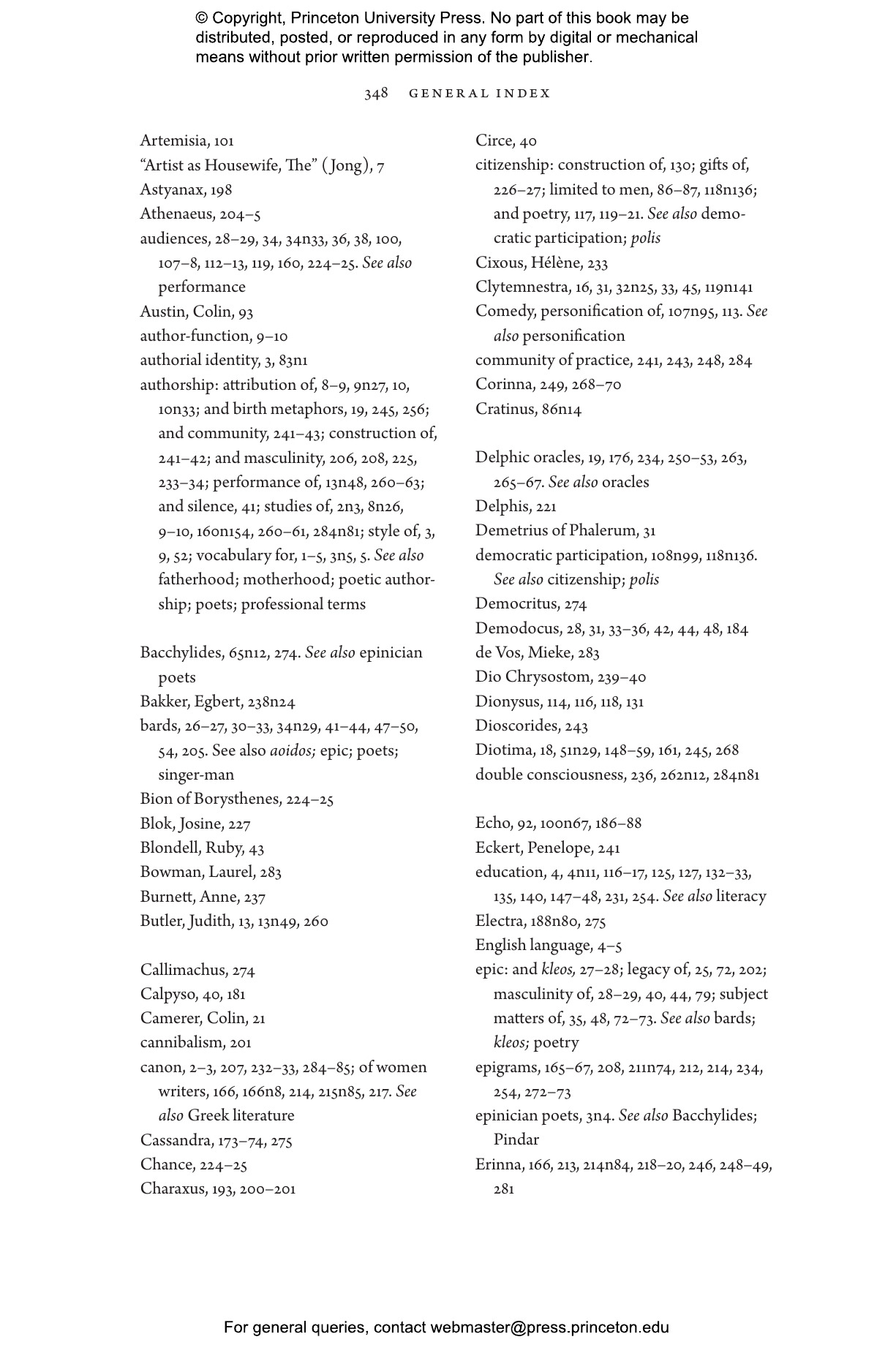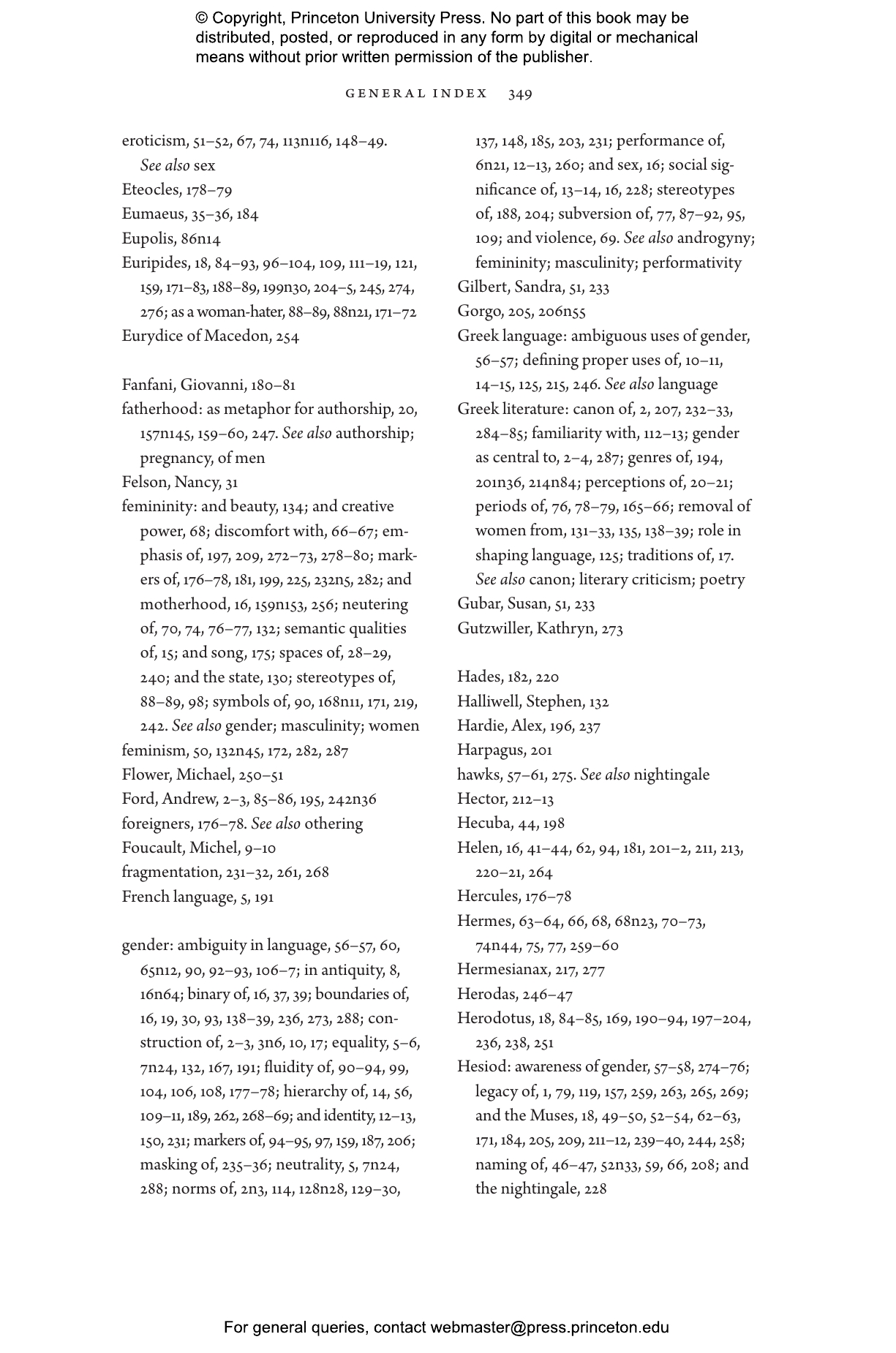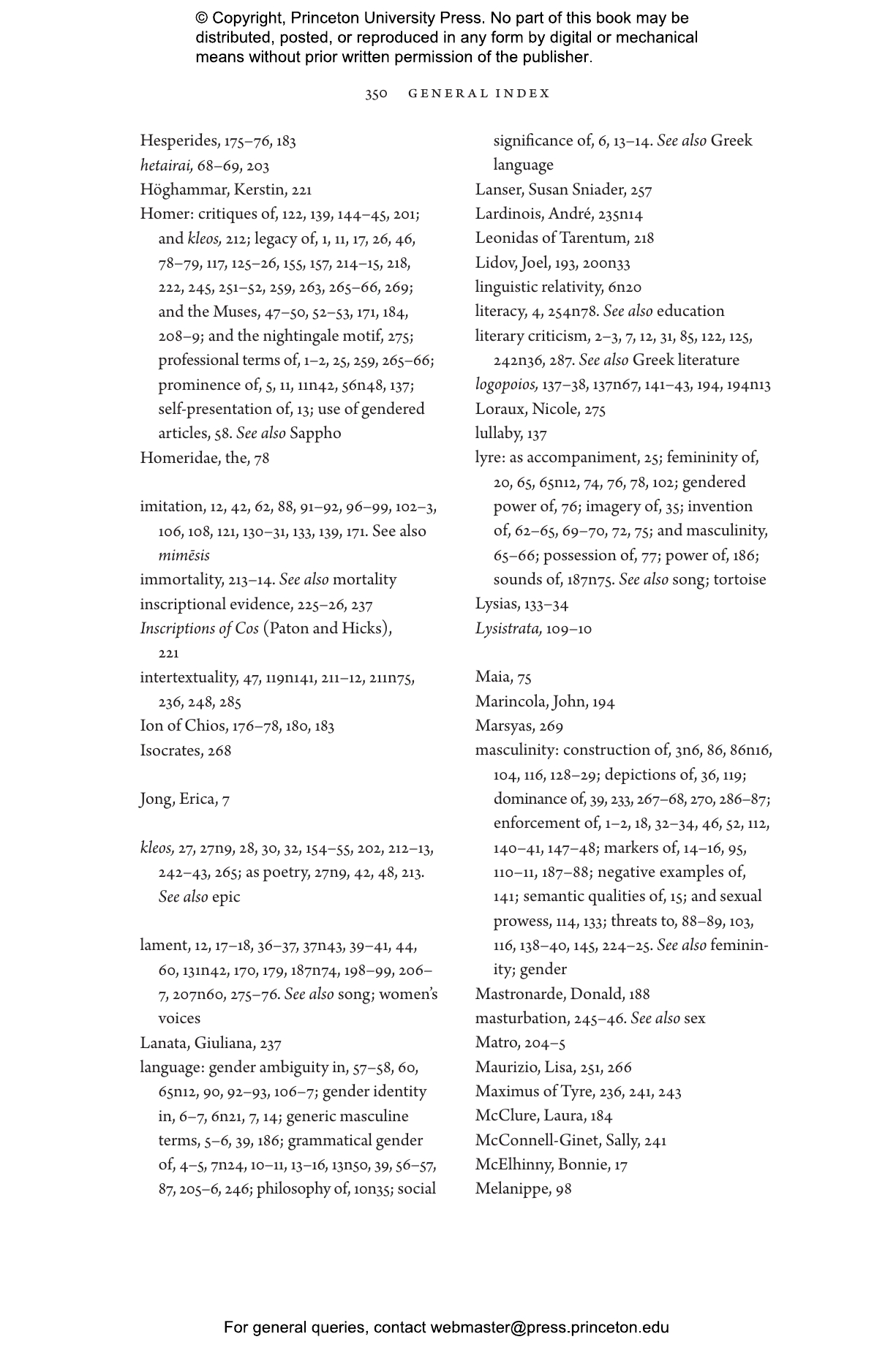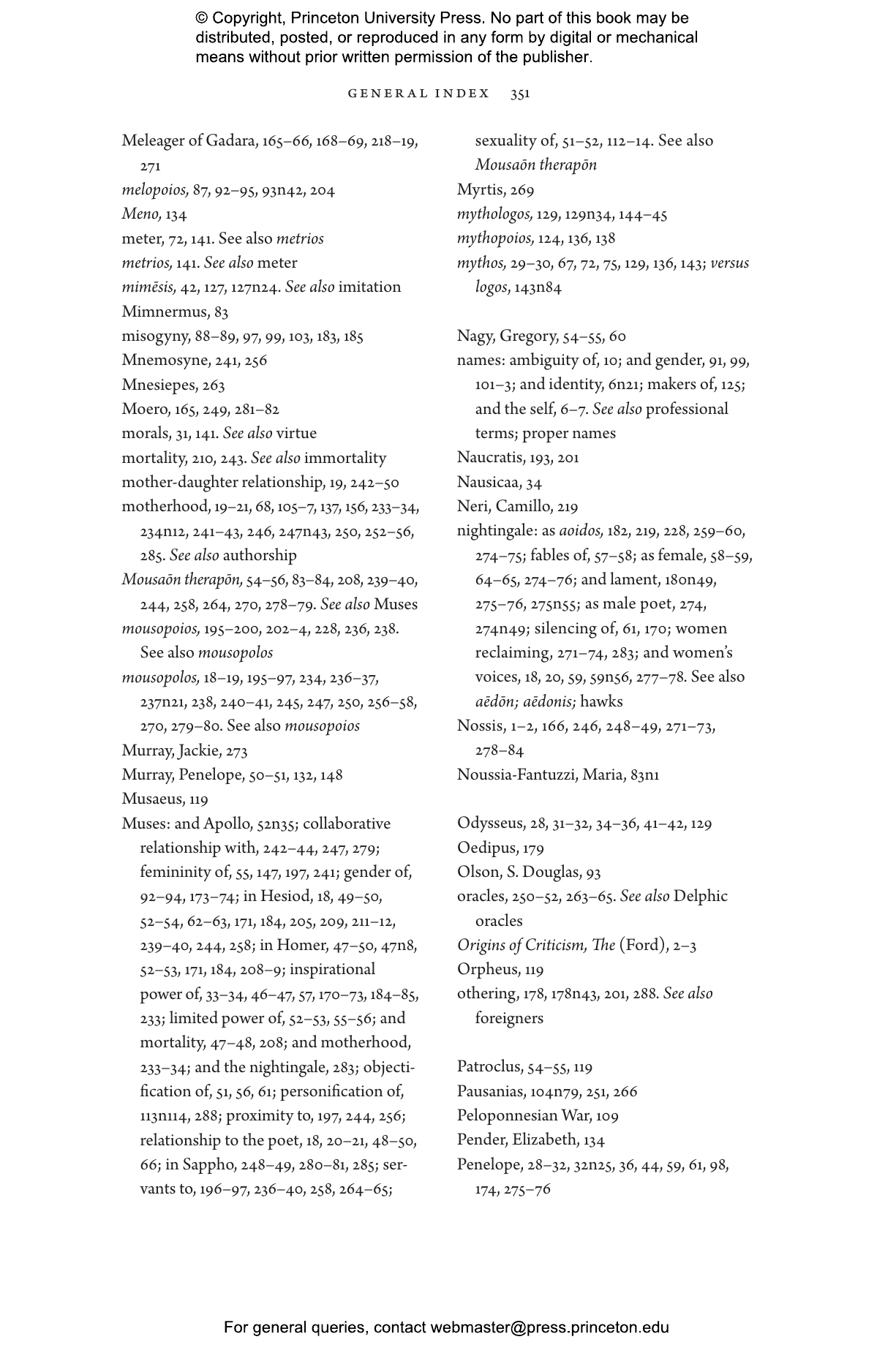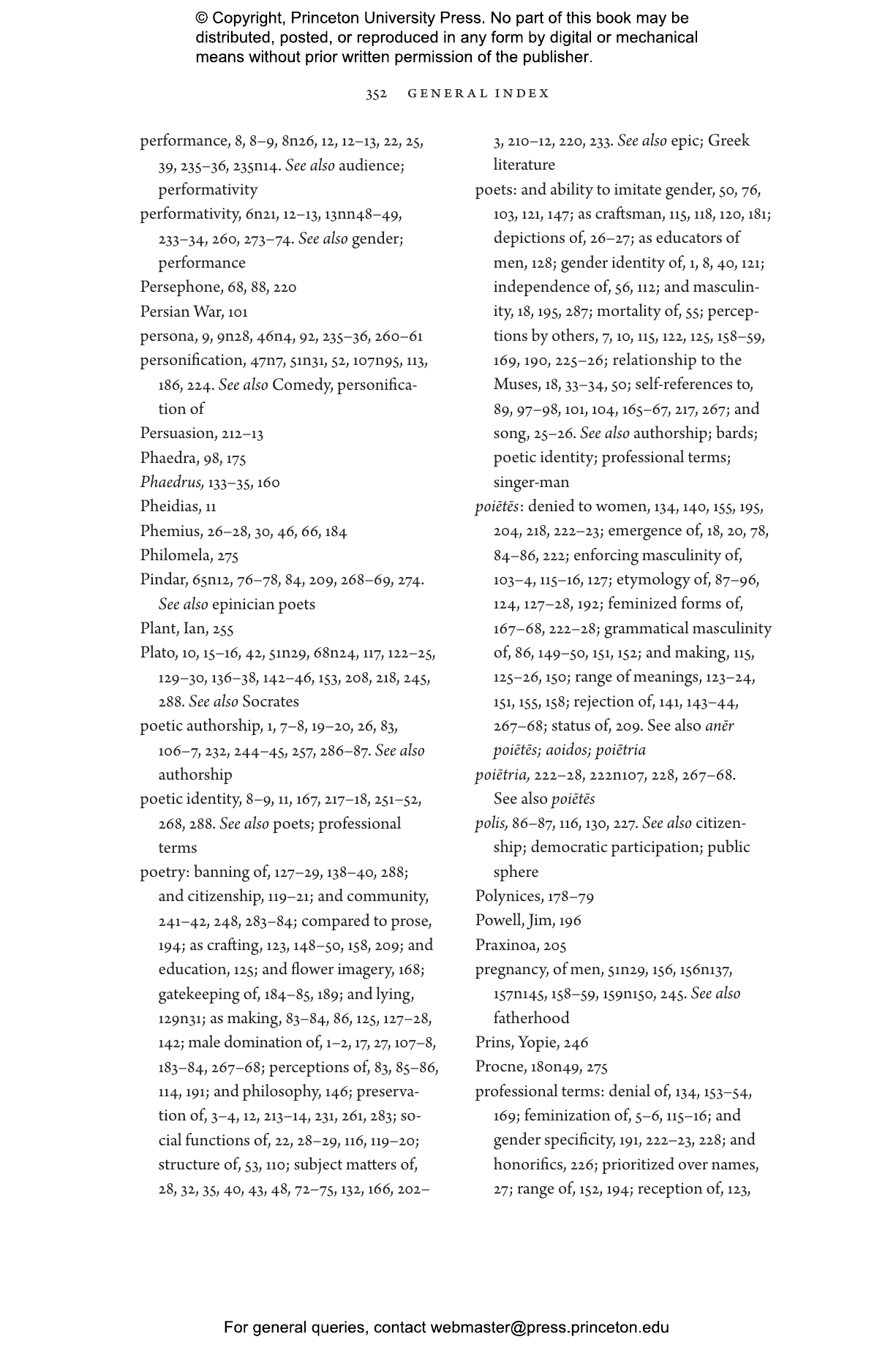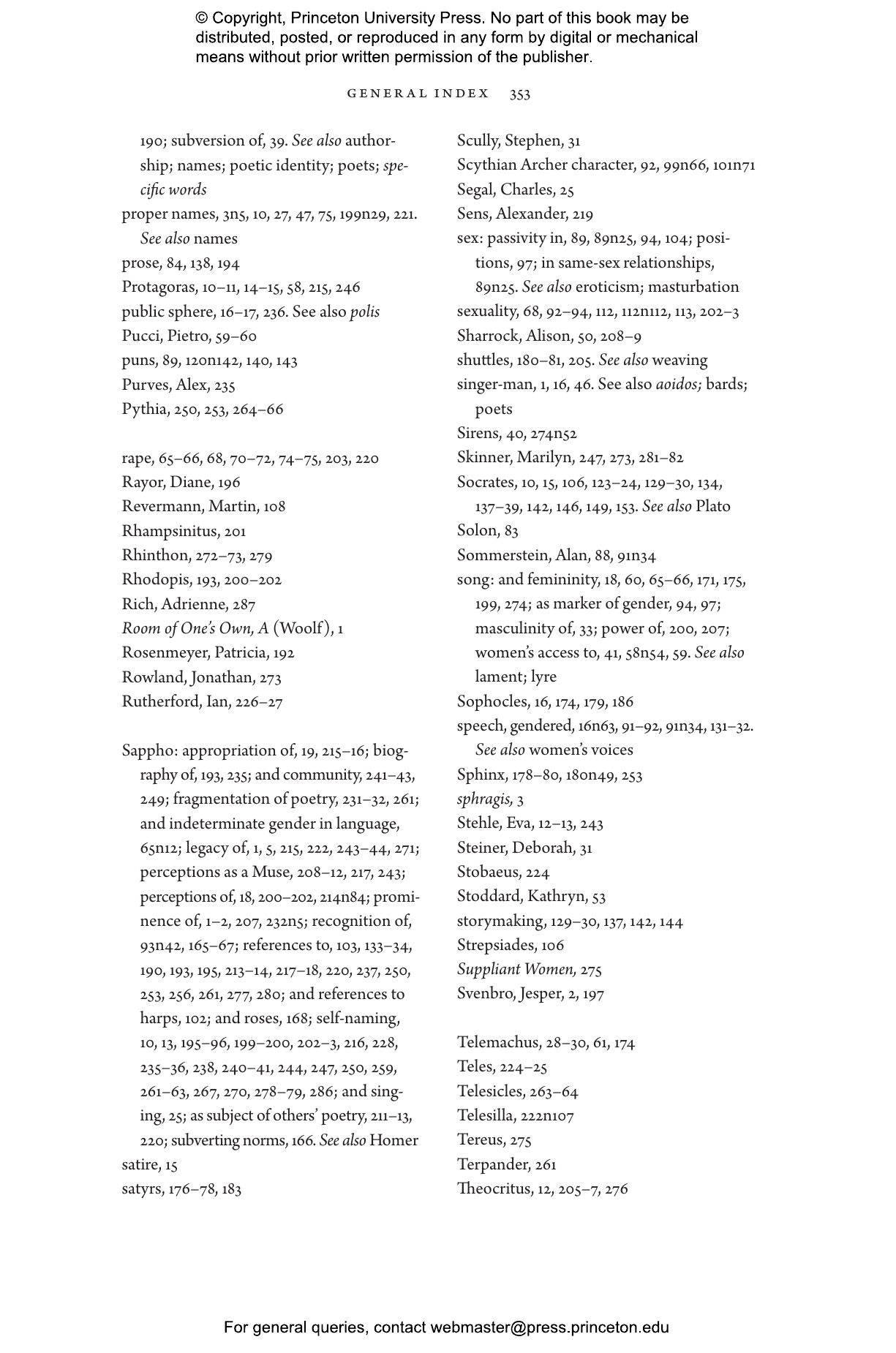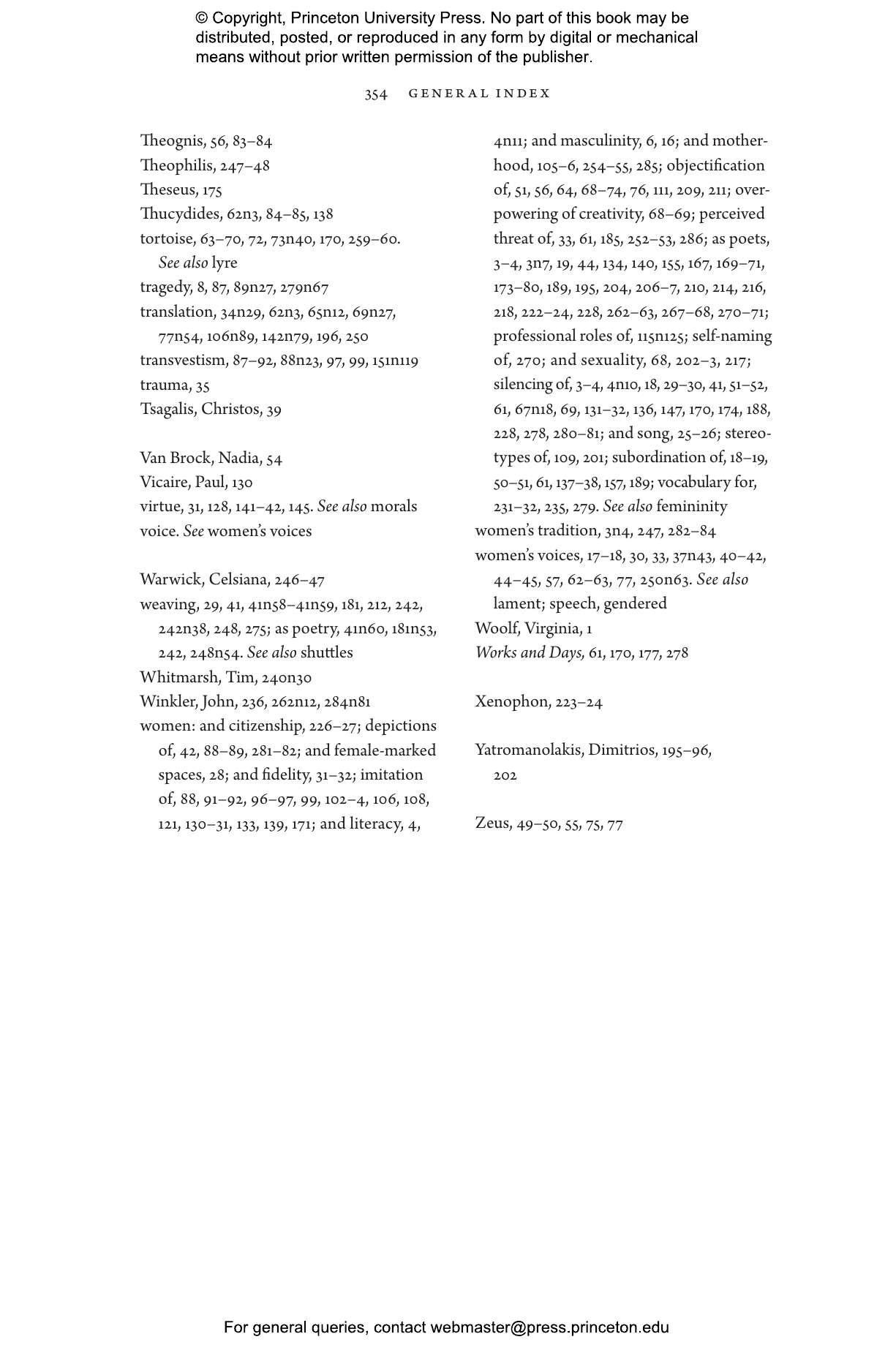When Sappho sang her songs, the only word that existed to describe a poet was a male one—aoidos, or “singer-man.” The most famous woman poet of ancient Greece, whose craft was one of words, had no words with which to talk about who she was and what she did. In How Women Became Poets, Emily Hauser rewrites the story of Greek literature as one of gender, arguing that the ways the Greeks talked about their identity as poets constructed, played with, and broke down gender expectations that literature was for men alone. Bringing together recent studies in ancient authorship, gender, and performativity, Hauser offers a new history of classical literature that redefines the canon as a constant struggle to be heard through, and sometimes despite, gender.
Women, as Virginia Woolf recognized, need rooms of their own in order to write. So, too, have women writers through history needed a name to describe what it is they do. Hauser traces the invention of that name in ancient Greece, exploring the archaeology of the gendering of the poet. She follows ancient Greek poets, philosophers, and historians as they developed and debated the vocabulary for authorship on the battleground of gender—building up and reinforcing the word for male poet, then in response creating a language with which to describe women who write. Crucially, Hauser reinserts women into the traditionally all-male canon of Greek literature, arguing for the centrality of their role in shaping ideas around authorship and literary production.
Awards and Recognition
- A Seminary Co-Op Notable Book of the Year
- A Choice Outstanding Academic Title of the Year
Emily Hauser is a senior lecturer in classics and ancient history at the University of Exeter and was a junior fellow at the Harvard Society of Fellows. She coedited Reading Poetry, Writing Genre, and is the author of a critically acclaimed trilogy of novels that reimagines the women of Greek myth: For the Most Beautiful, For the Winner, and For the Immortal.
"Provocative. . . .A brilliant book."—Shadi Barsch, Times Literary Supplement
"[A]n exciting and elegant survey of the entire ancient Greek literary tradition as a male construction, [and] a book that forces the reader to rethink many common assumptions about “women’s” poetry from antiquity to today."—Choice
"Exceptionally detailed."—Lilah Grace Canevaro, Greece & Rome
“How Women Became Poets delivers a bold new perspective, showcasing with meticulous care and sensitivity how women poets exercised their authorship and claimed their position in a male canon. From Sappho to Hellenistic female poets, Delphic oracles, and epigrams, Hauser traces with remarkable rigor the genesis and making of the gendered poet. Female poets had to make a case for their own existence in antiquity and did so with subtlety and brilliance. This book makes us rethink our assumptions about ancient poets by probing the process of masculinization in the ancient poetic world.”—Andromache Karanika, author of Voices at Work: Women, Performance, and Labor in Ancient Greece
“This is a bold, ambitious, and original book: a new literary history of ancient Greece that challenges the model of male authorship by examining the implicit ‘strategies of masculinization’ that silenced and appropriated female voices.”—Laura K. McClure, editor of Sexuality and Gender in the Classical World
“A subtle and elegant argument for reconceptualizing the idea of a tradition of ‘women’s’ poetry, which is something of a tour de force given the vanishingly small amount of evidence on which it is necessarily based.”—Ruby Blondell, author of Helen of Troy in Hollywood
“In exploring the equal claims of men and women to be recognized as poets and writers in ancient Greece, Hauser brilliantly illuminates the crucial role of gender in our reading of literary texts, and our understanding of their social contexts, both then and since.”—Judith Peller Hallett, coauthor of Ancient Women Writers of Greece and Rome
